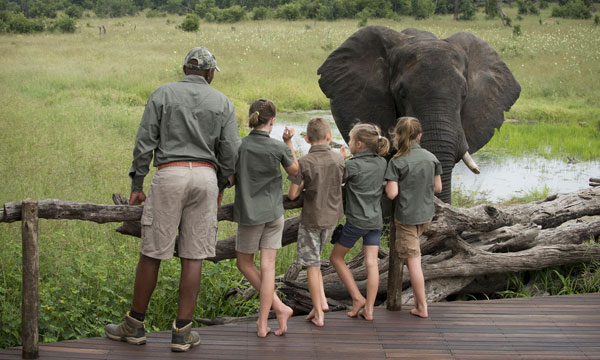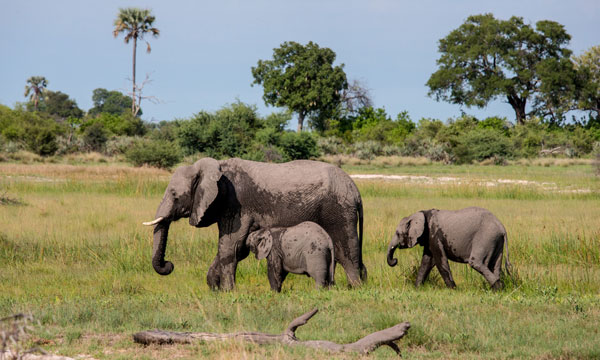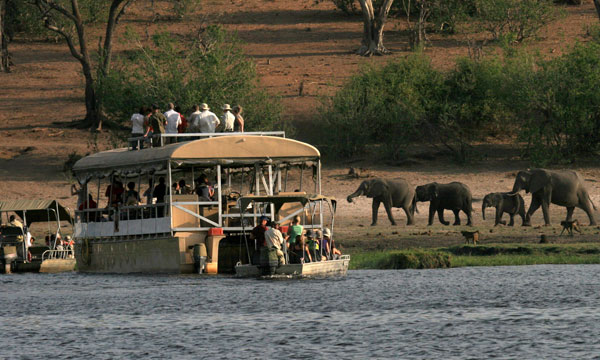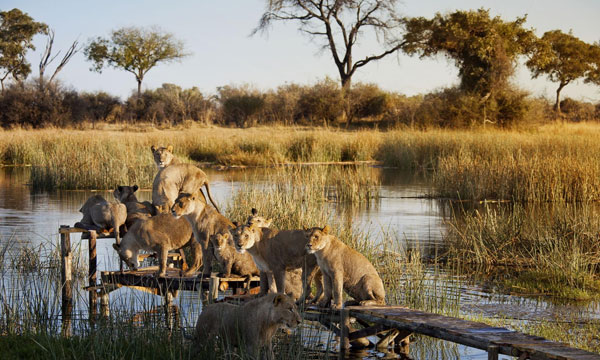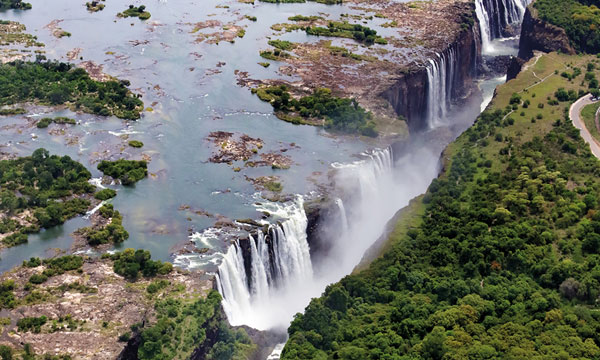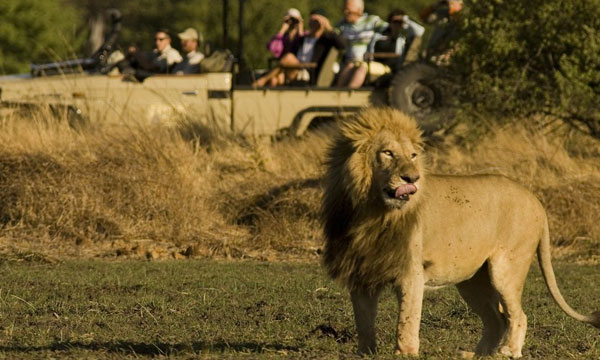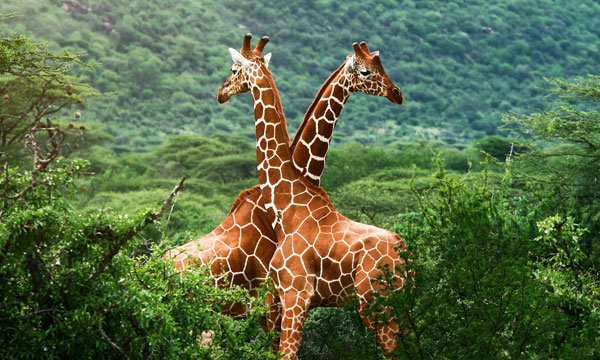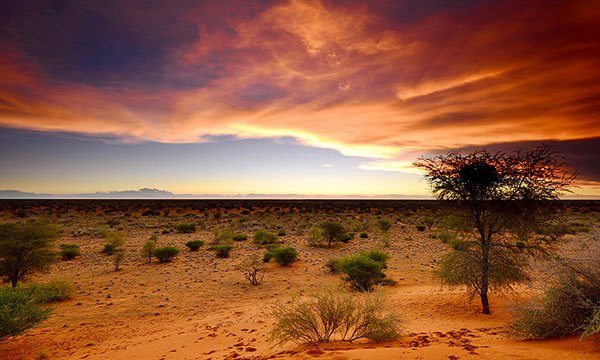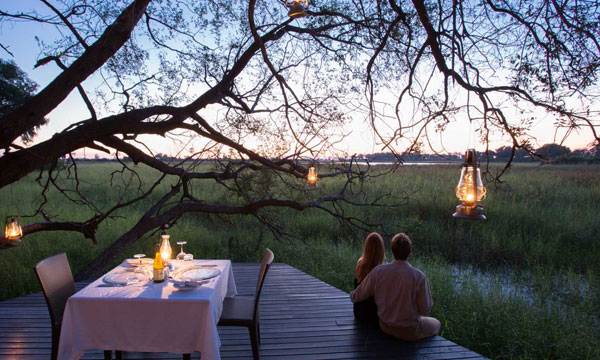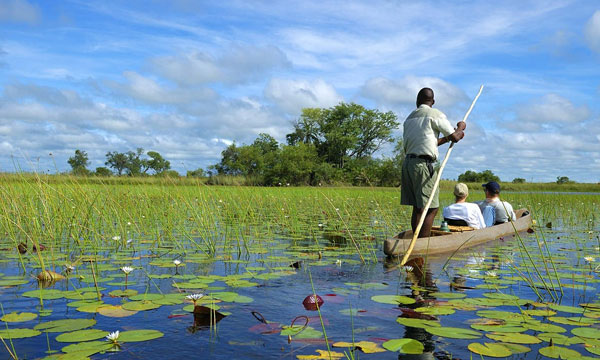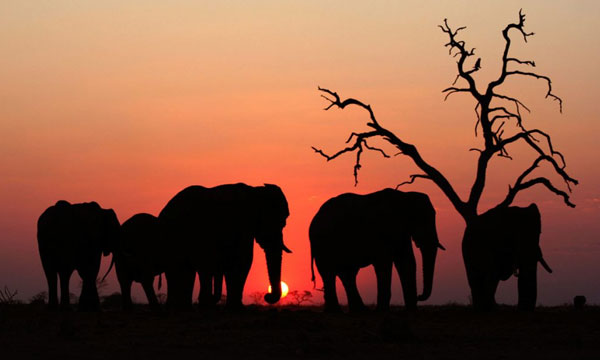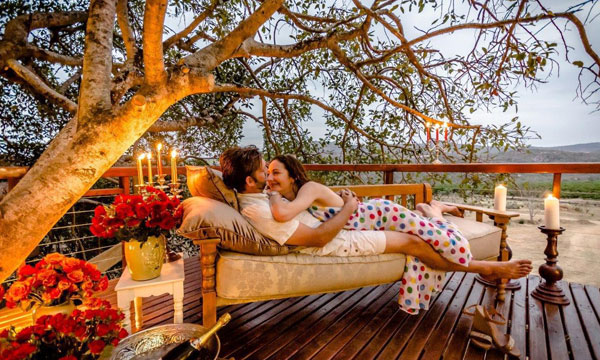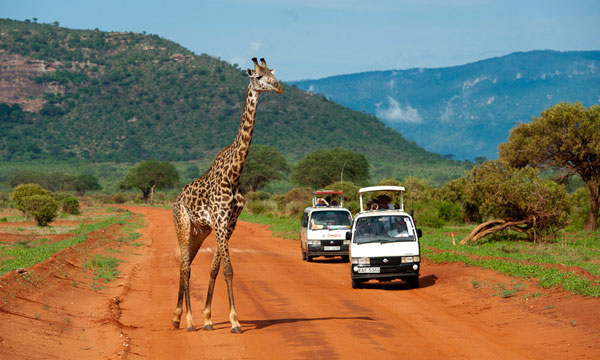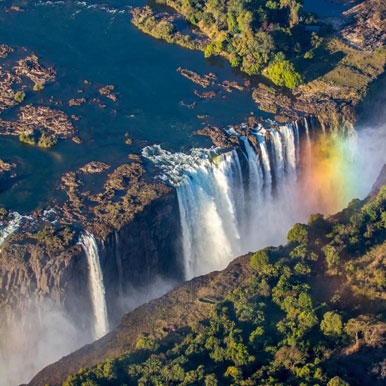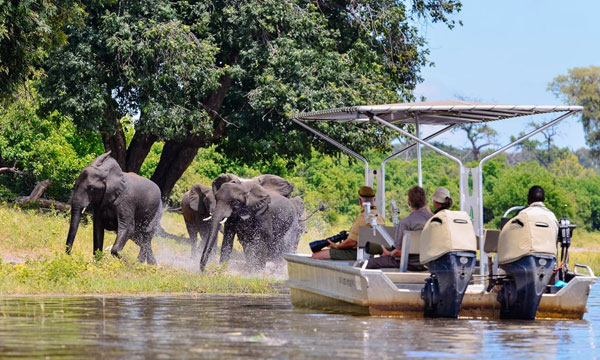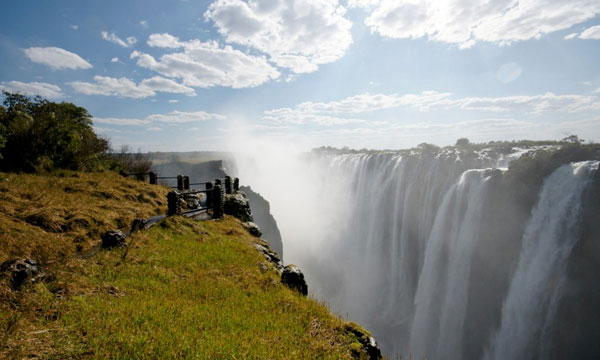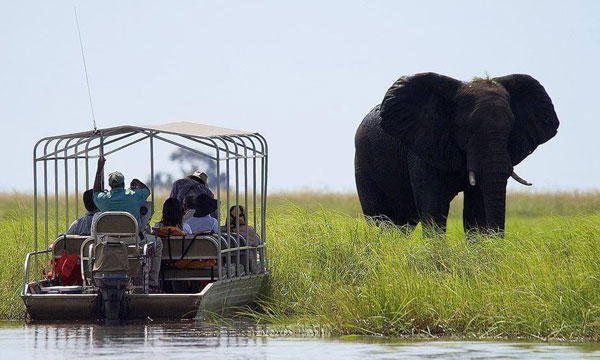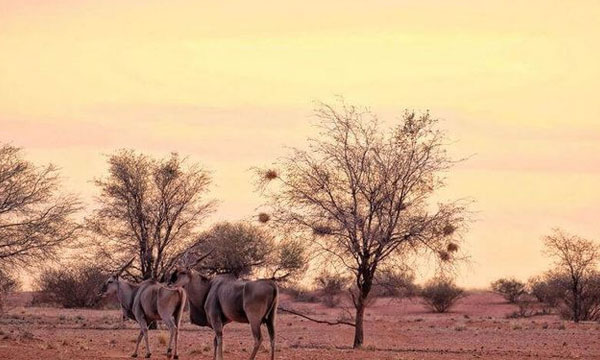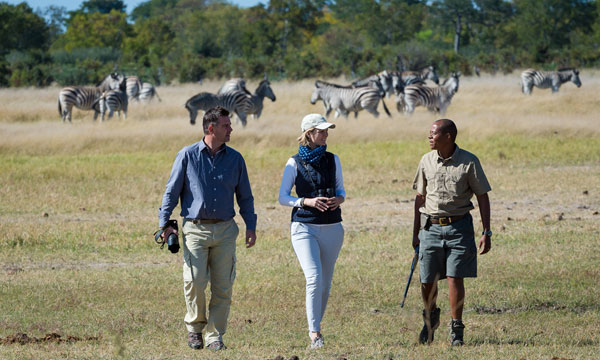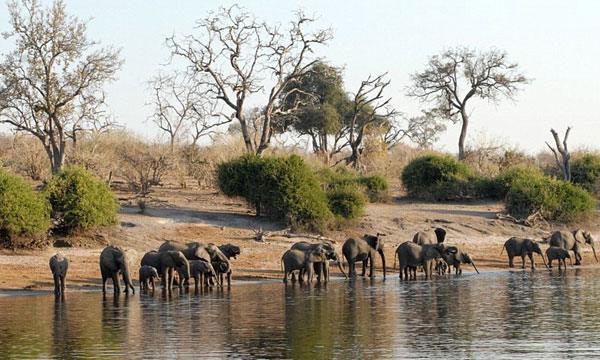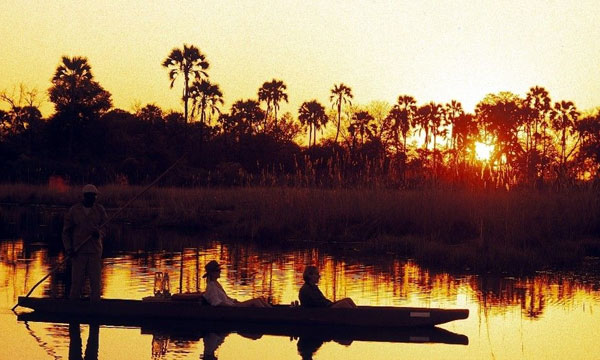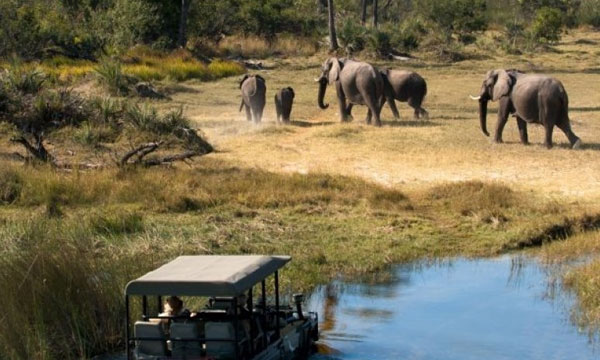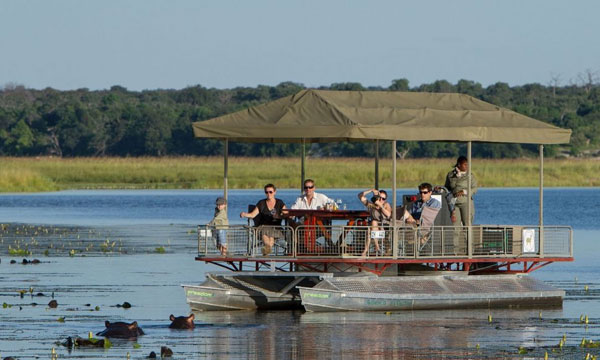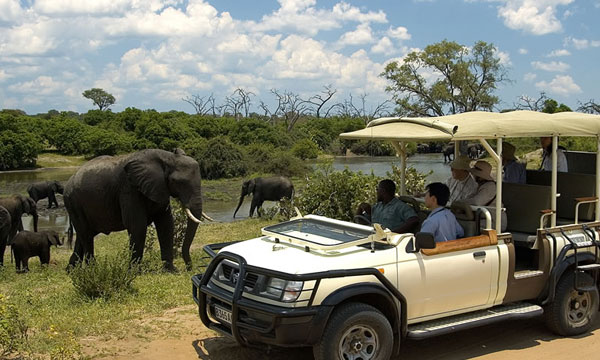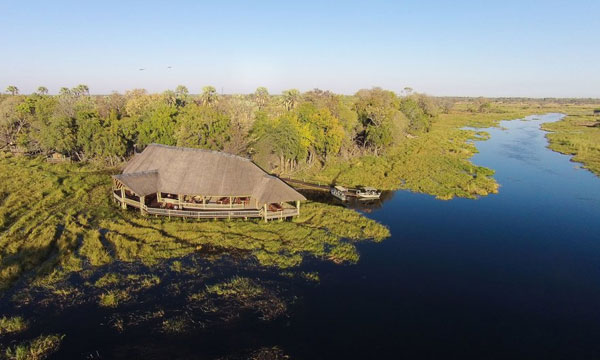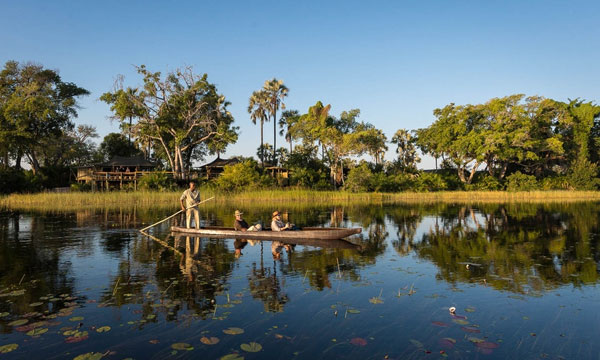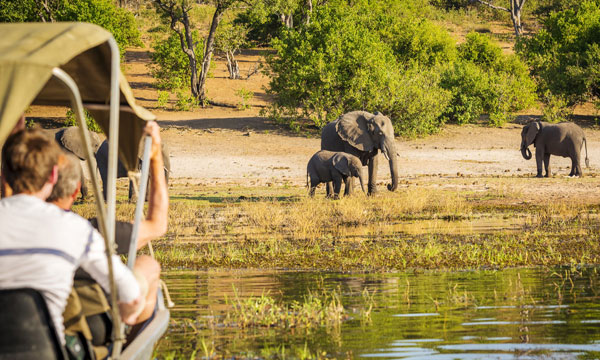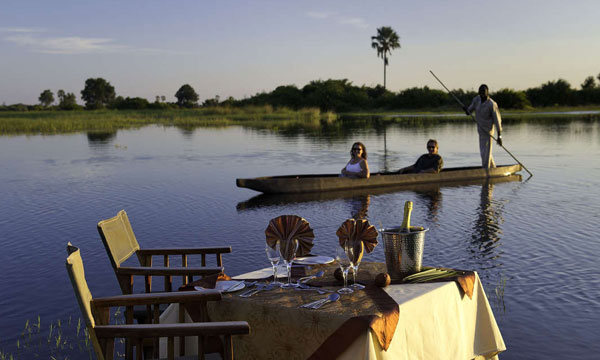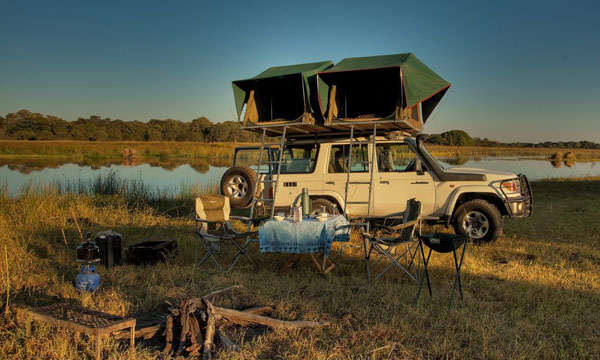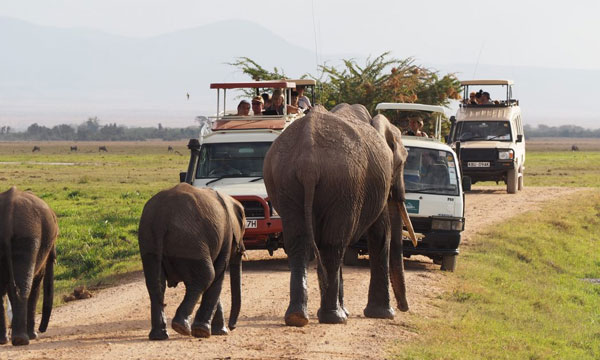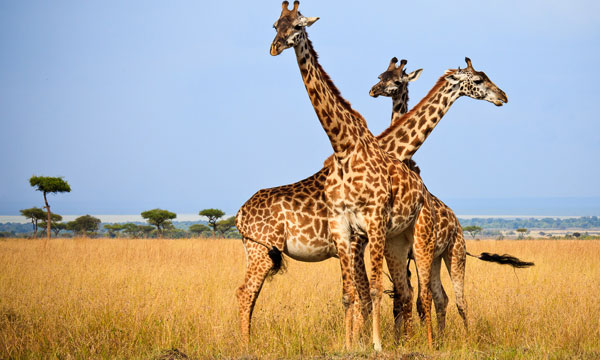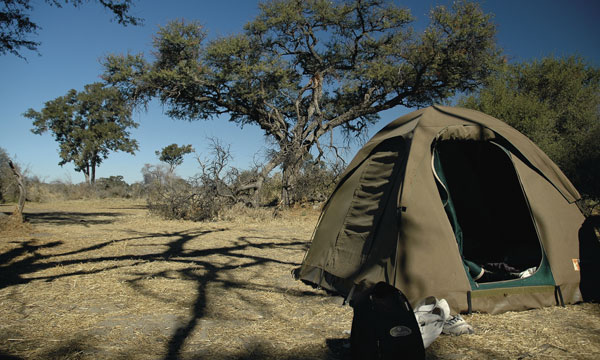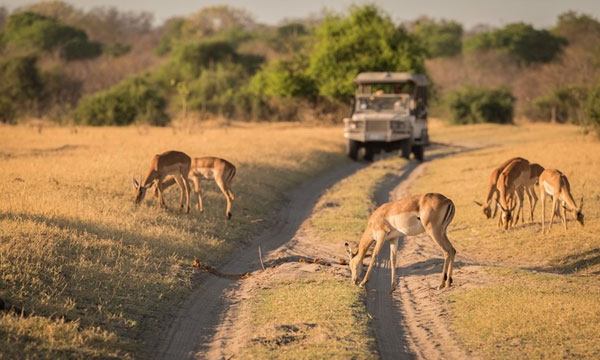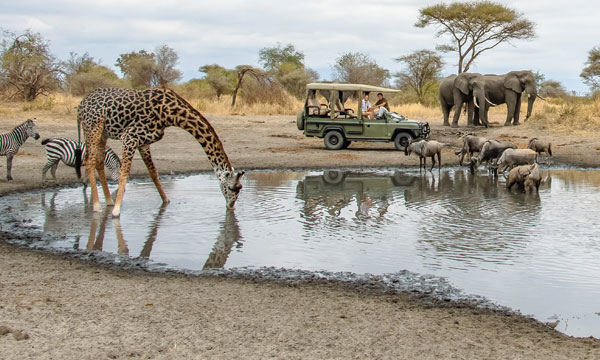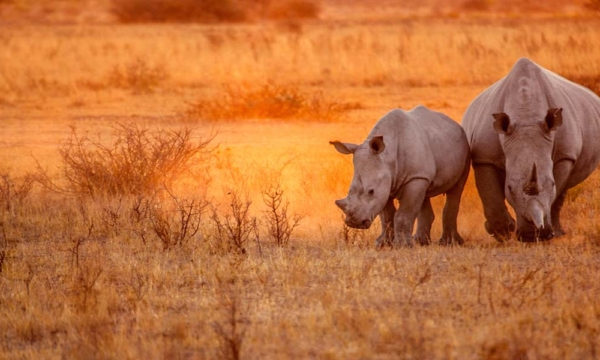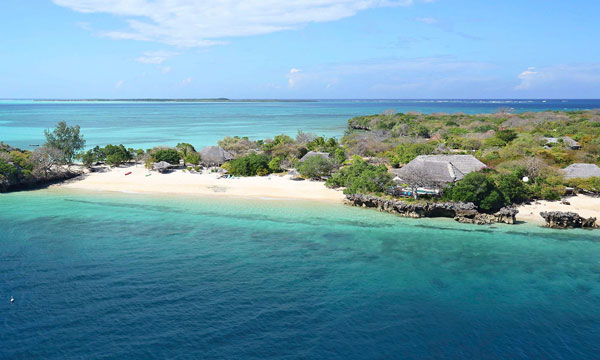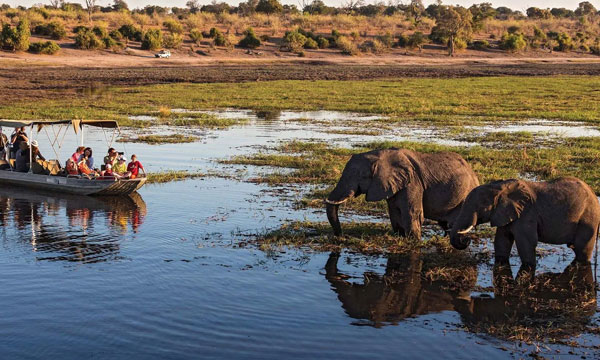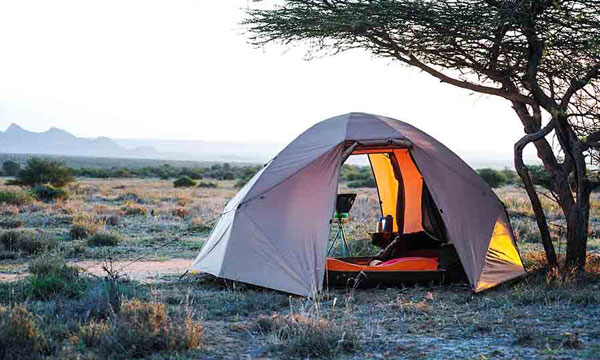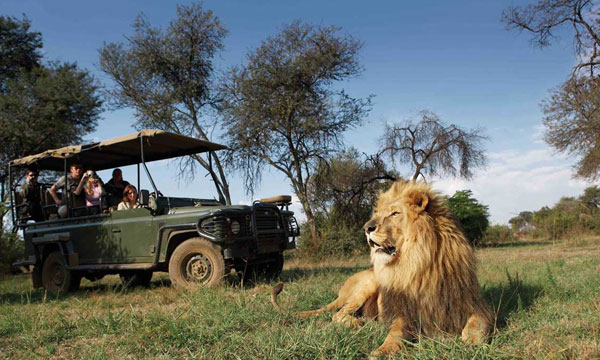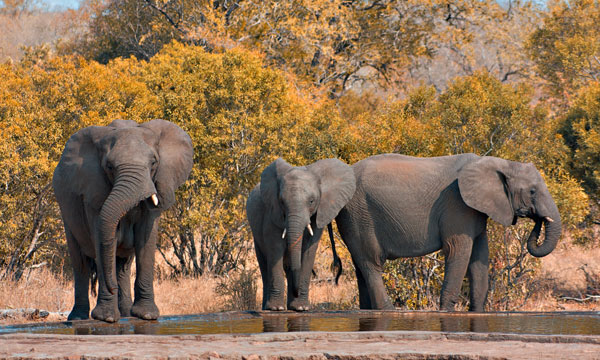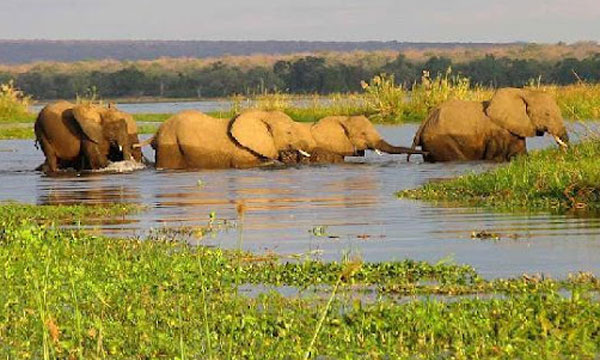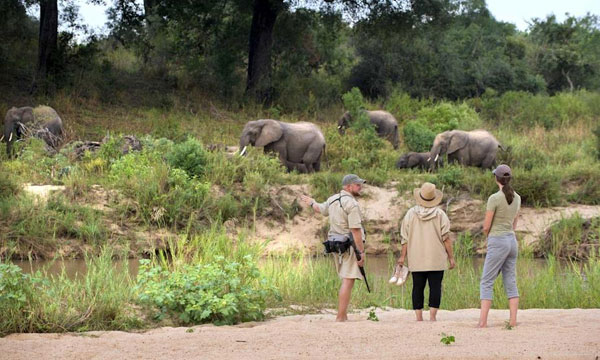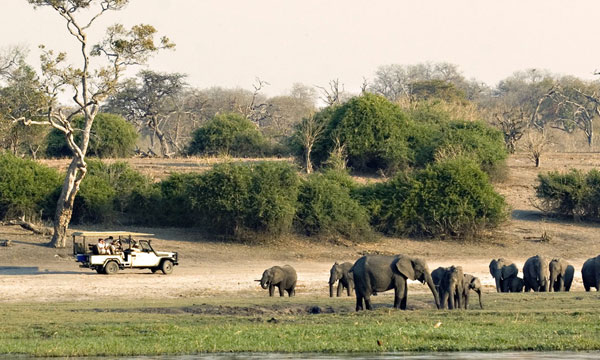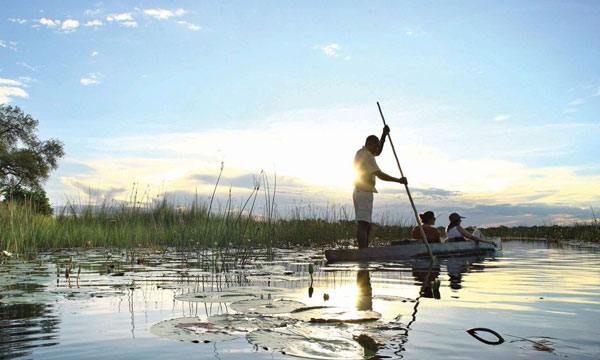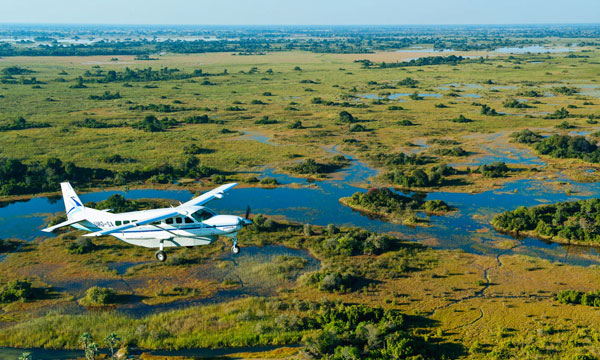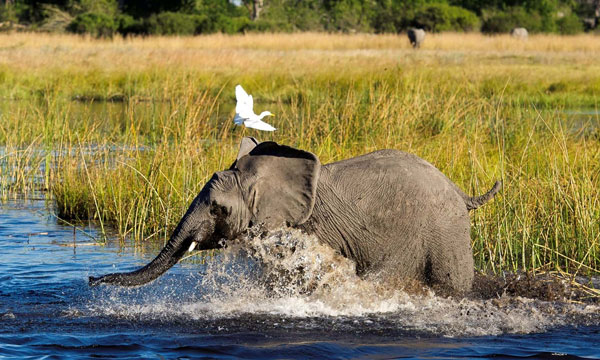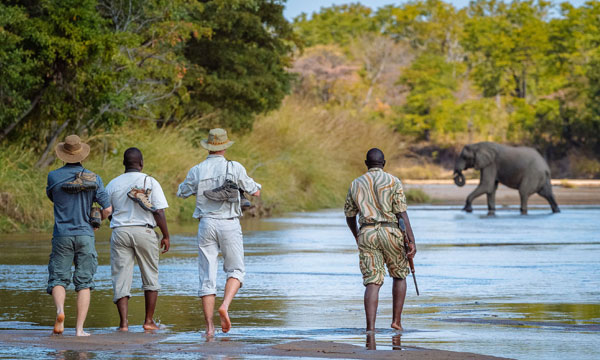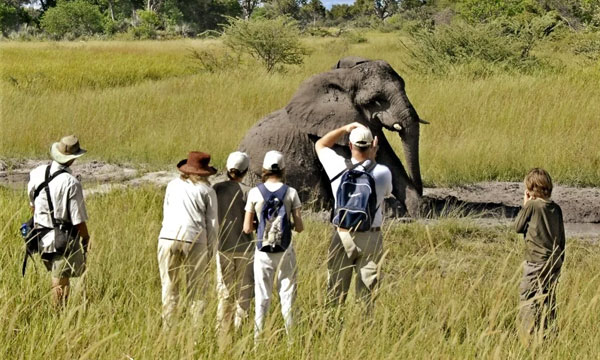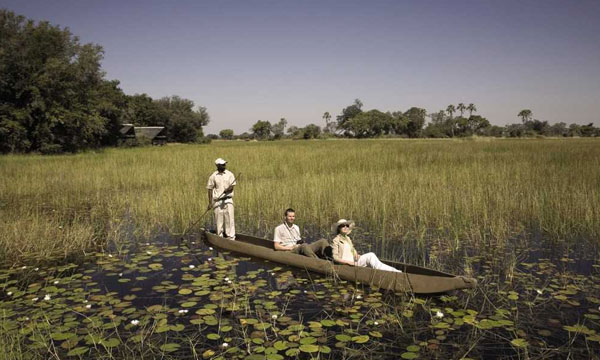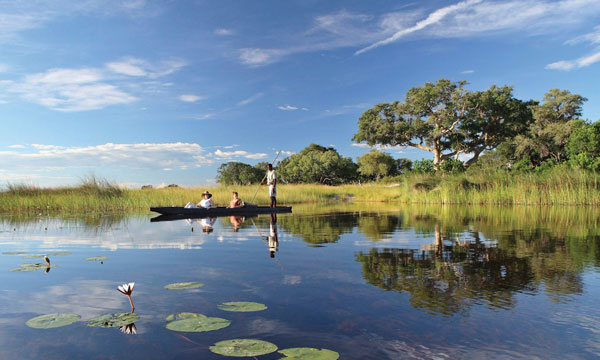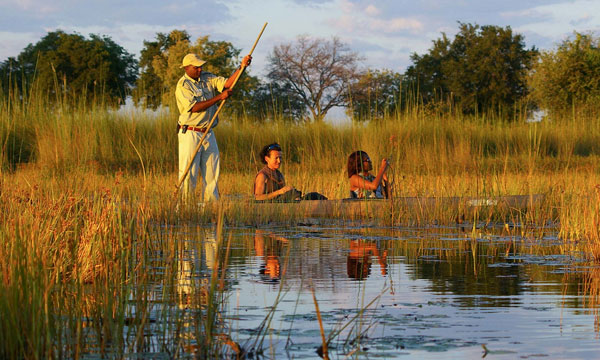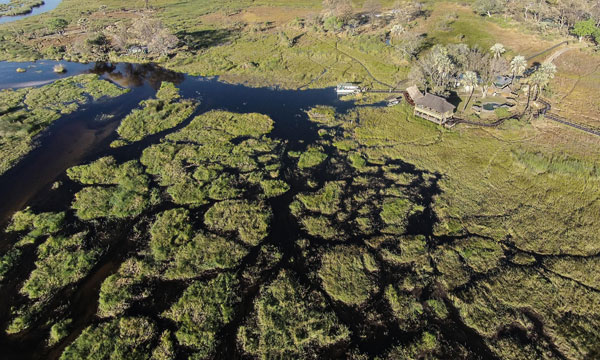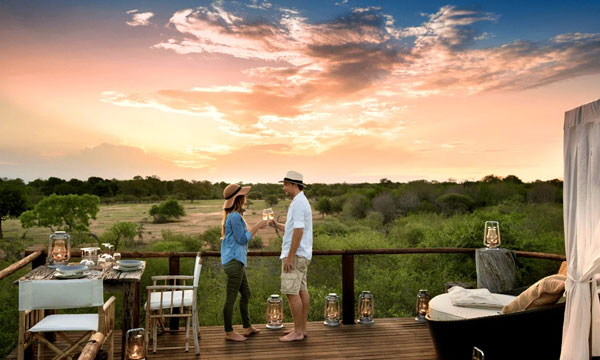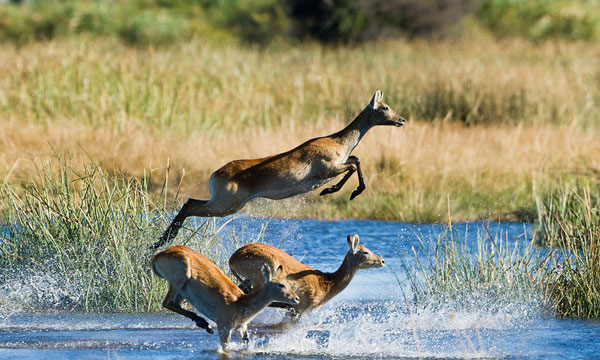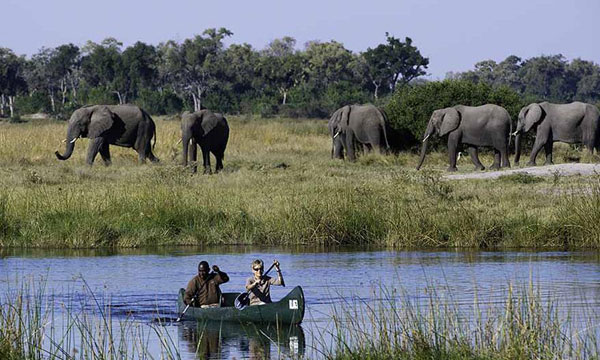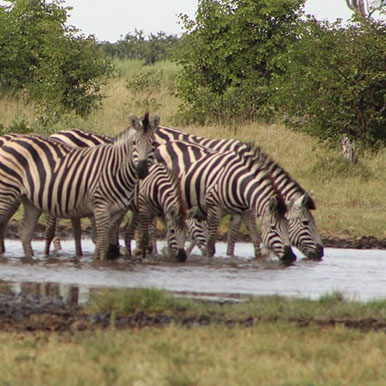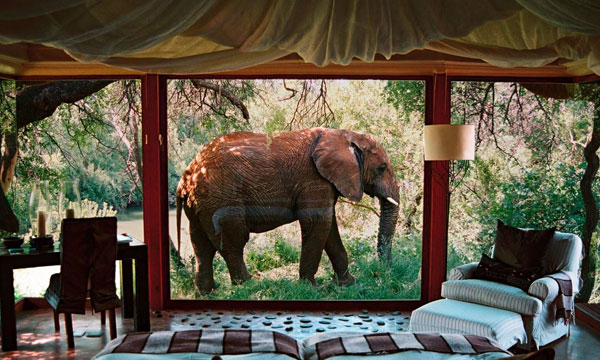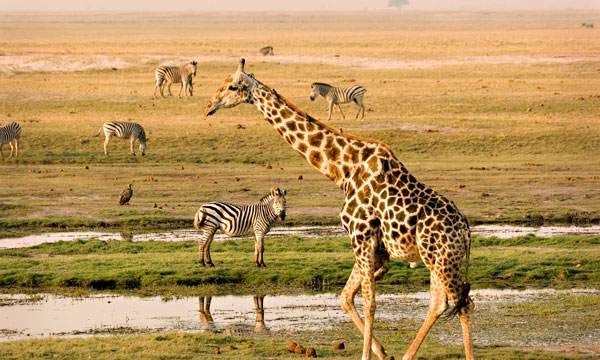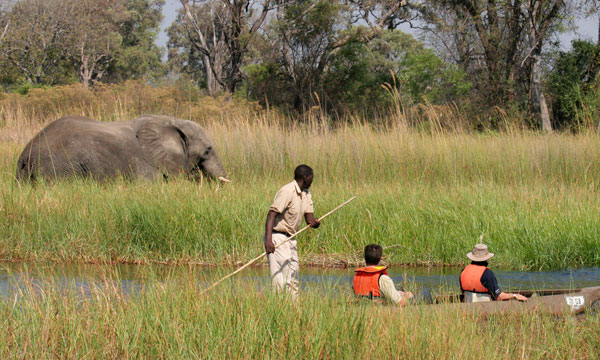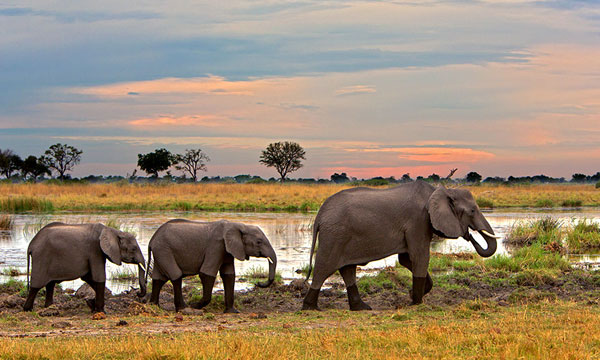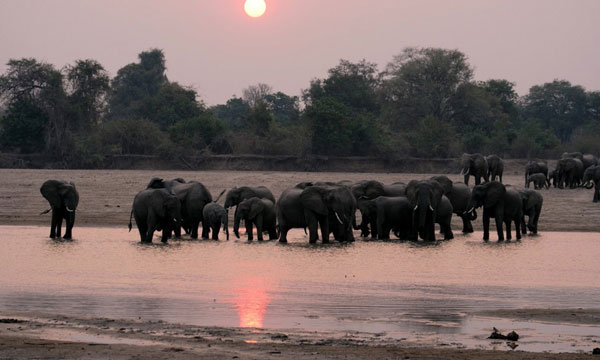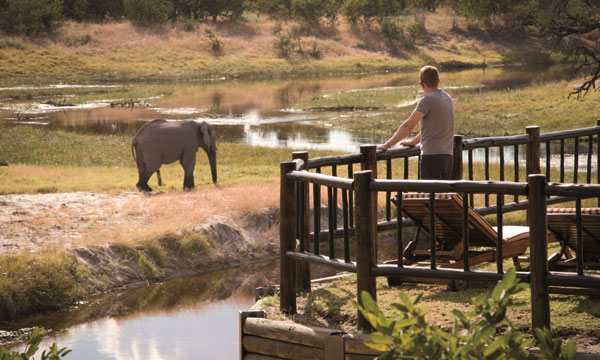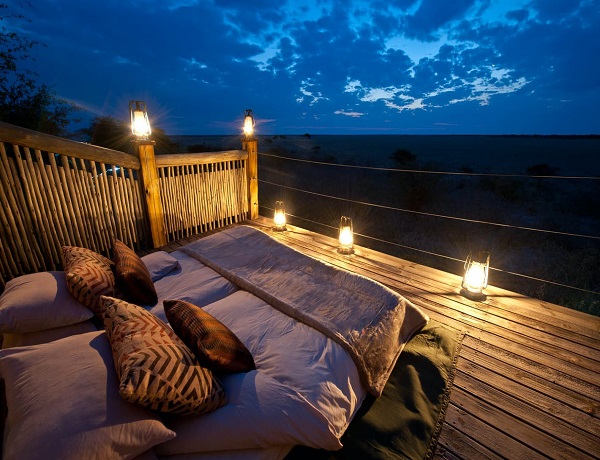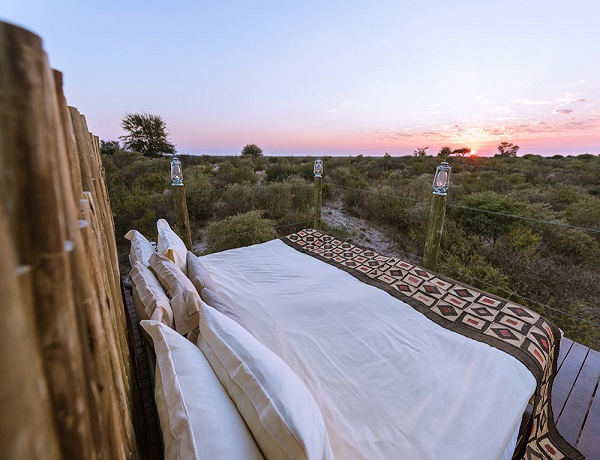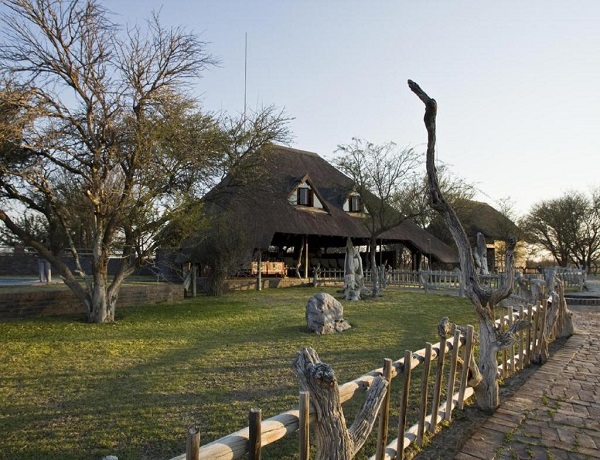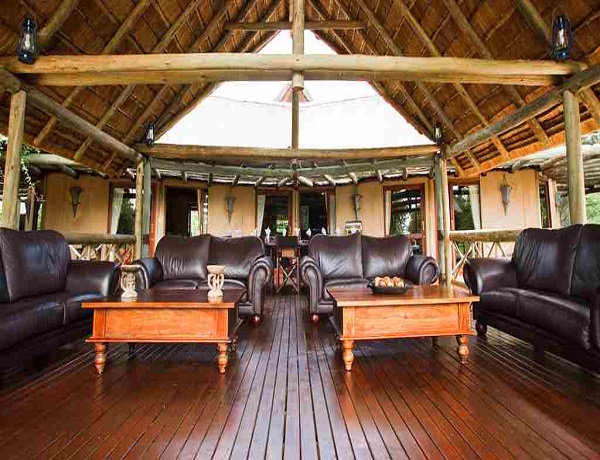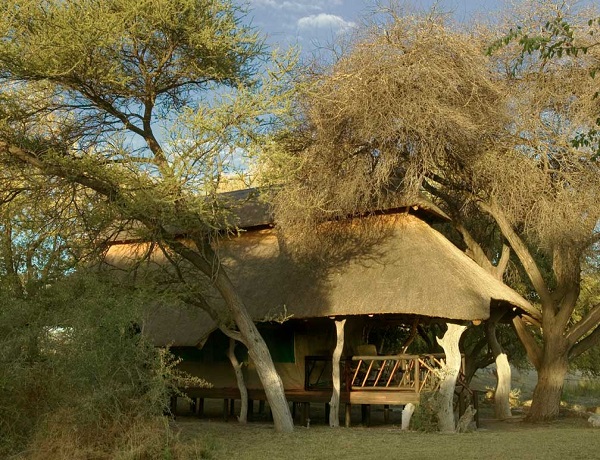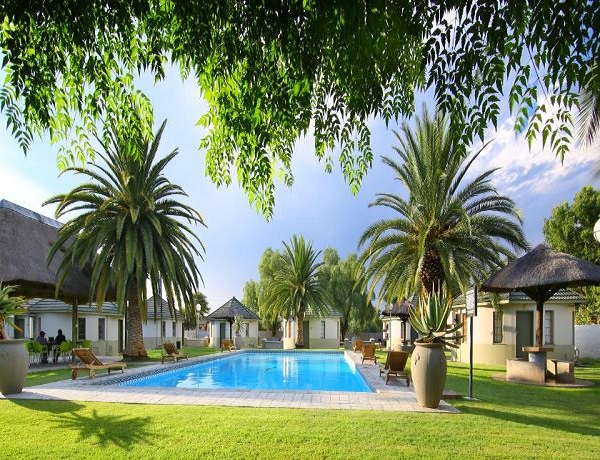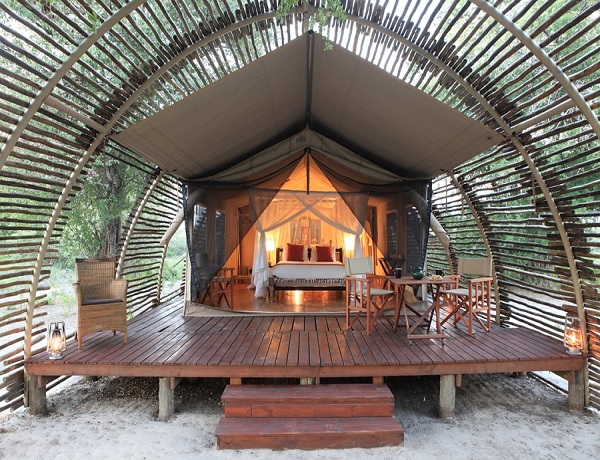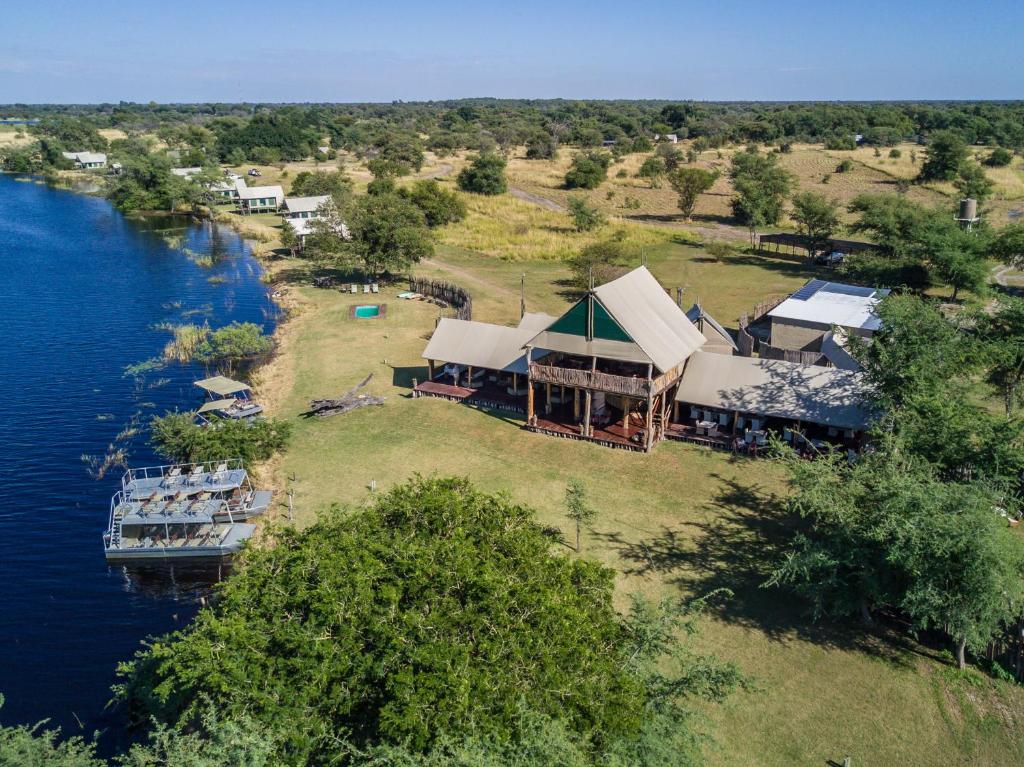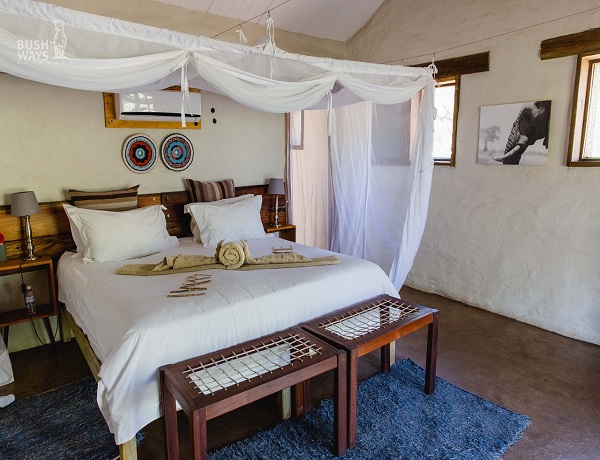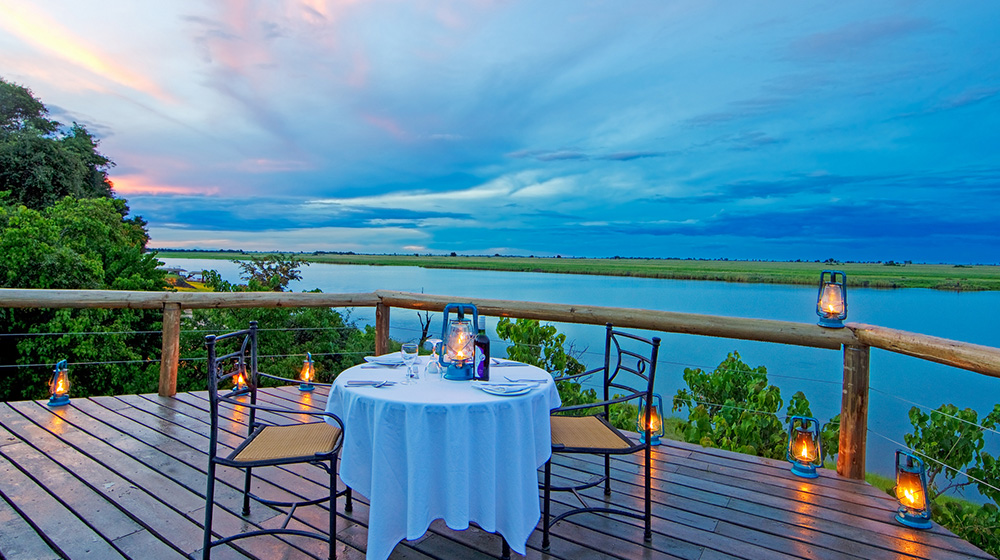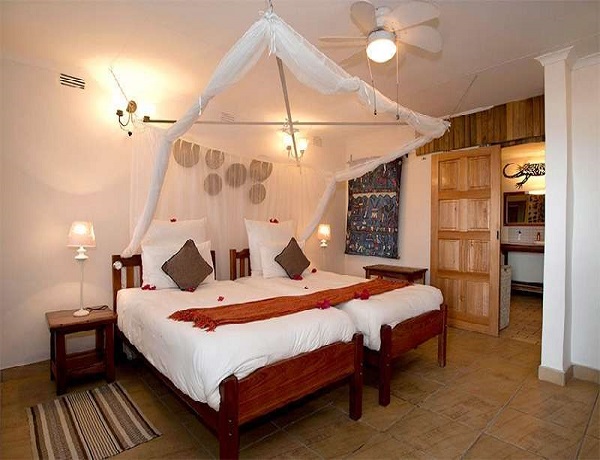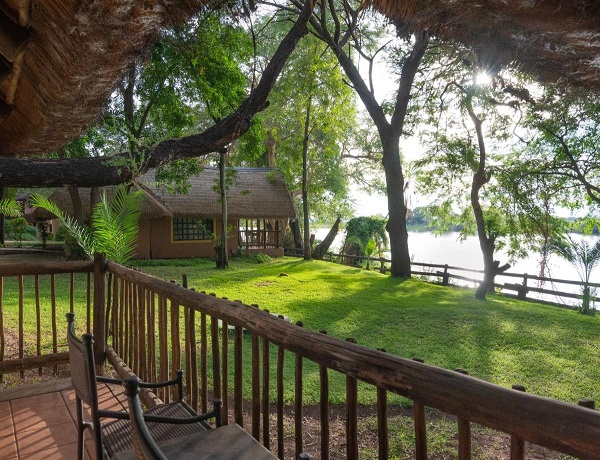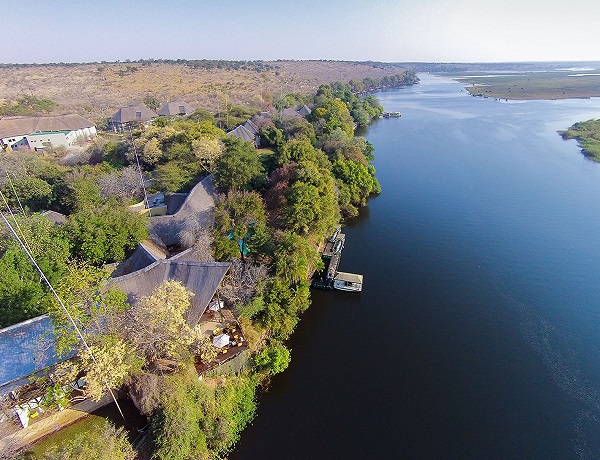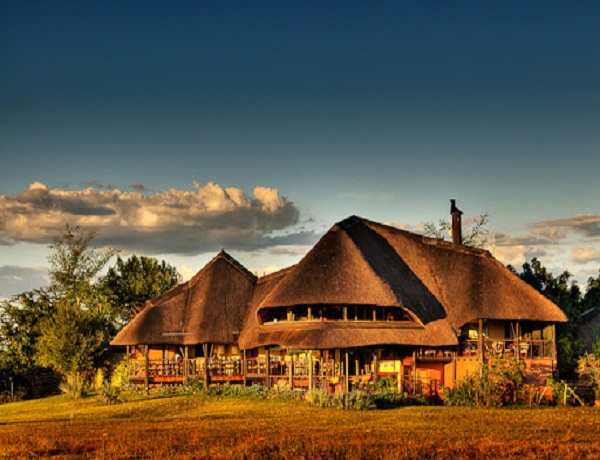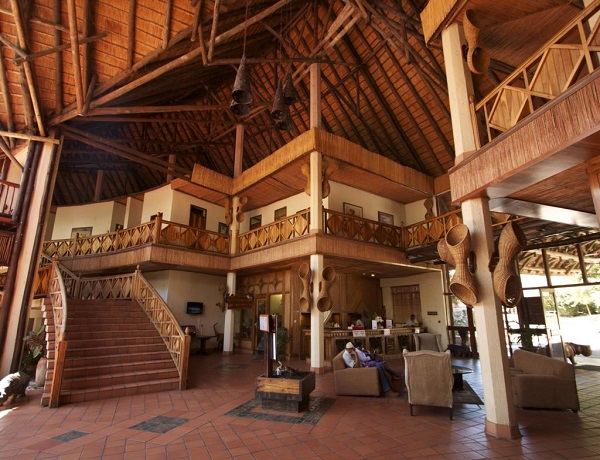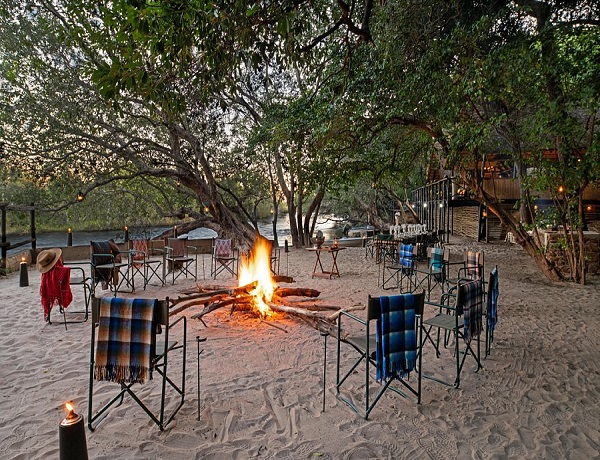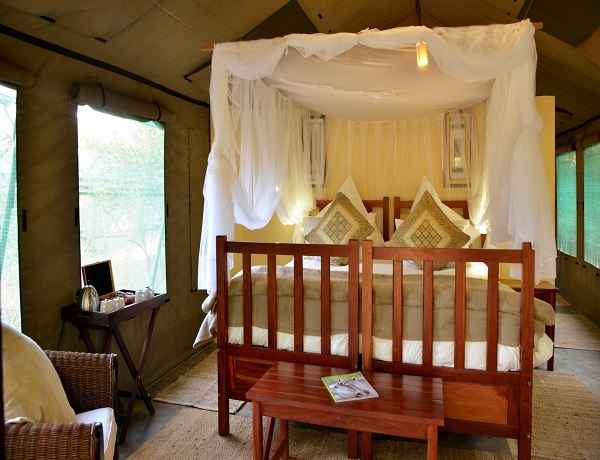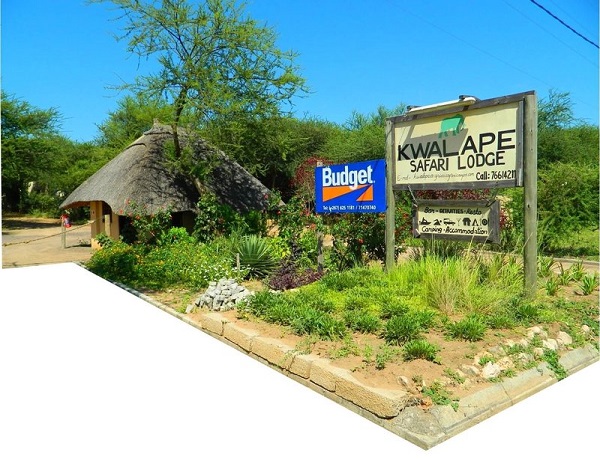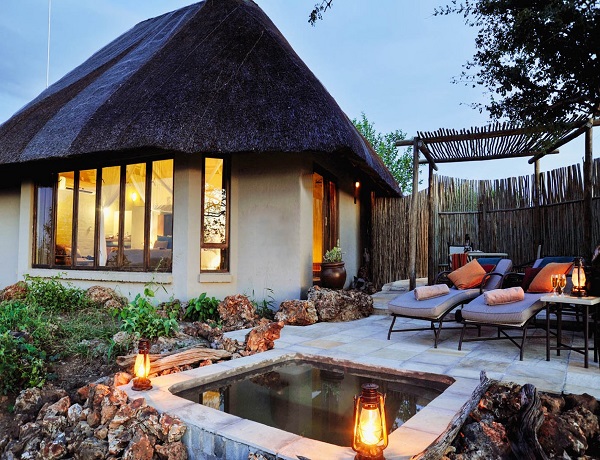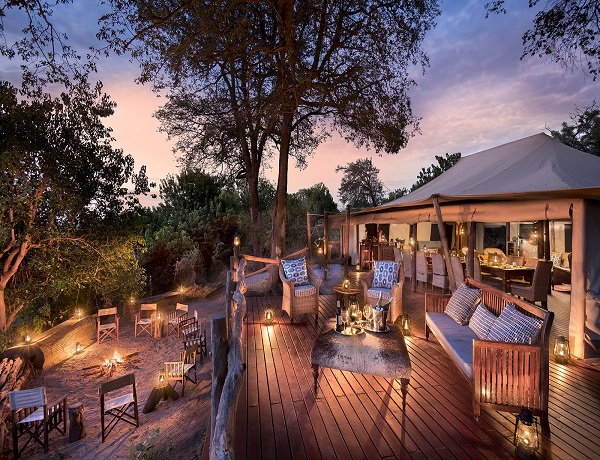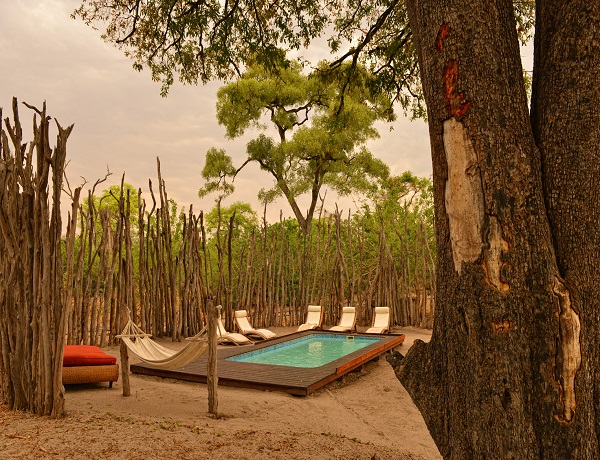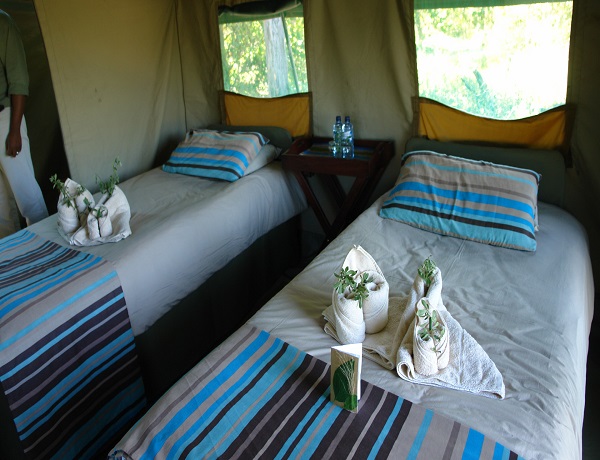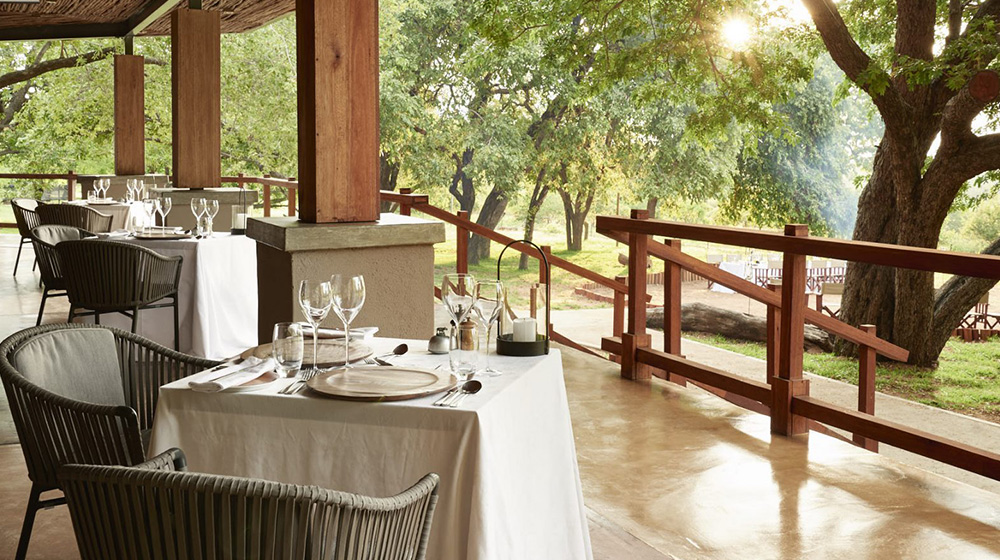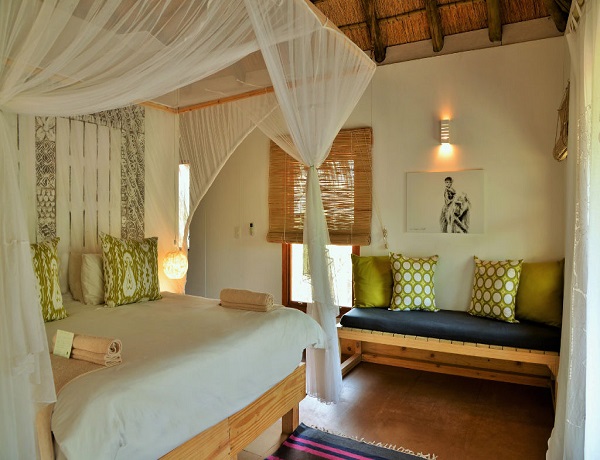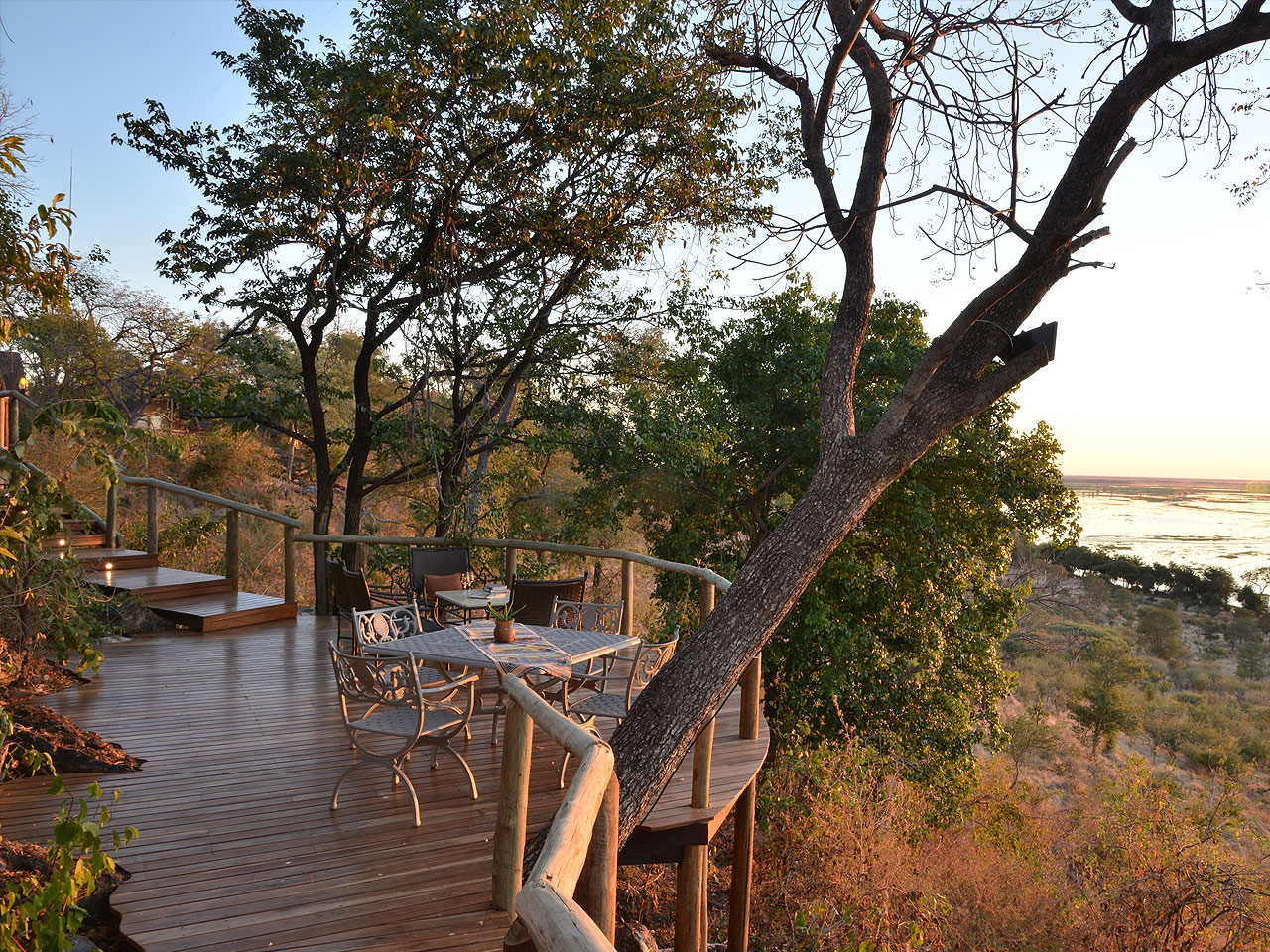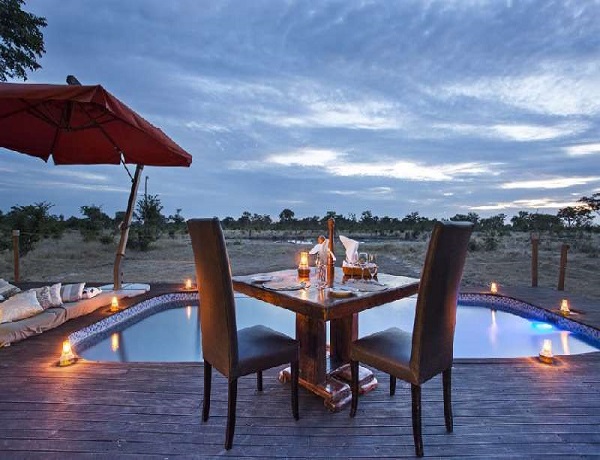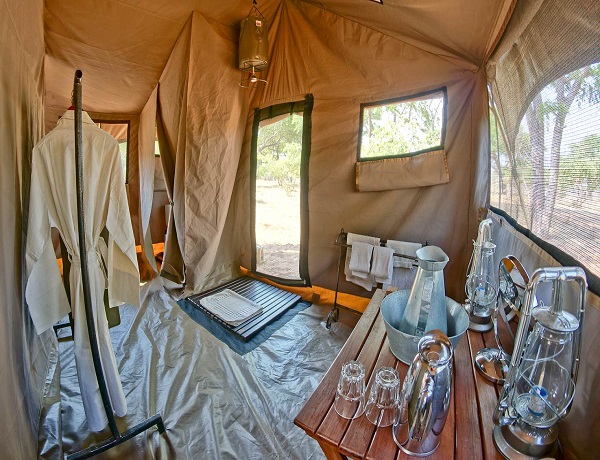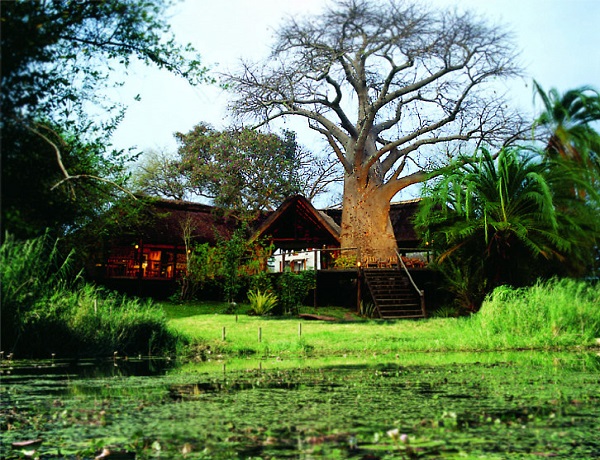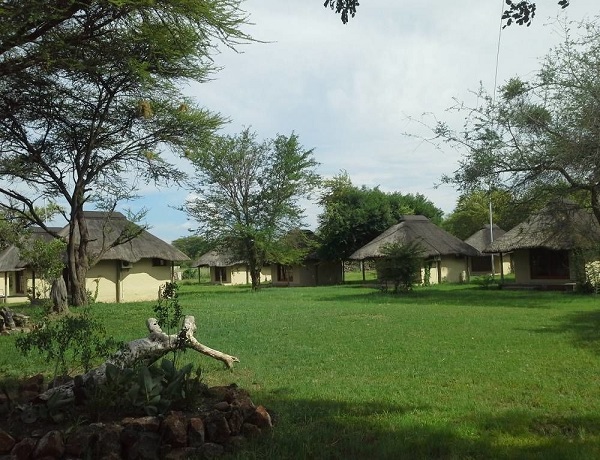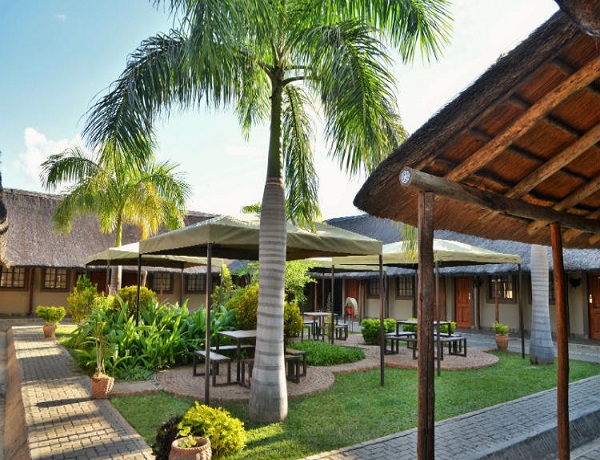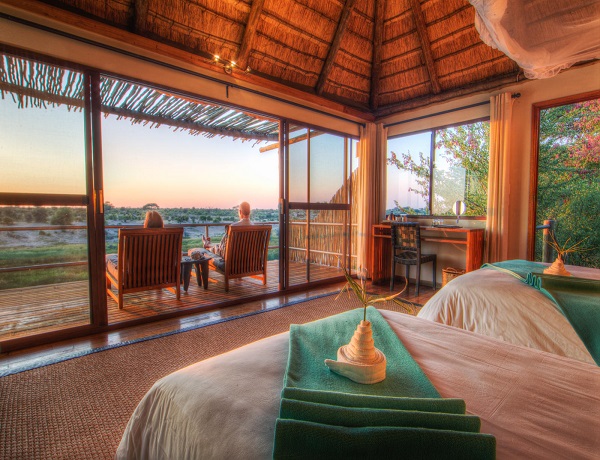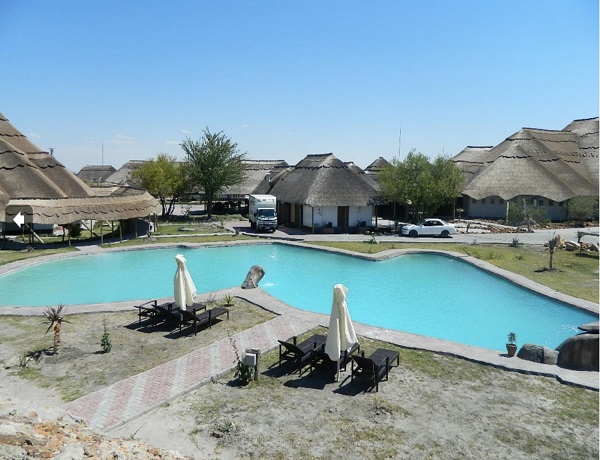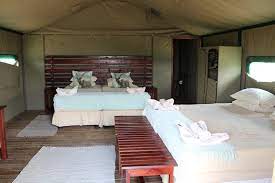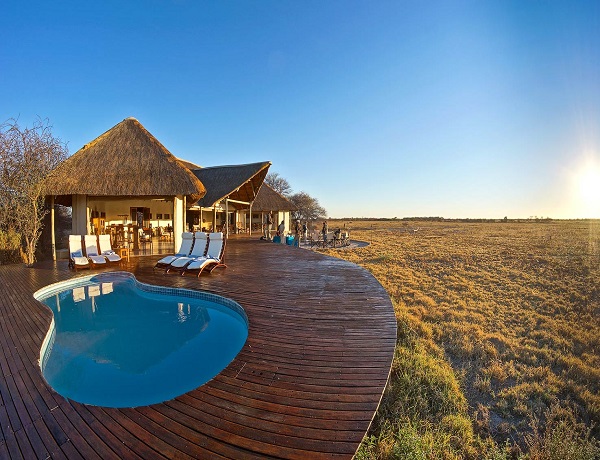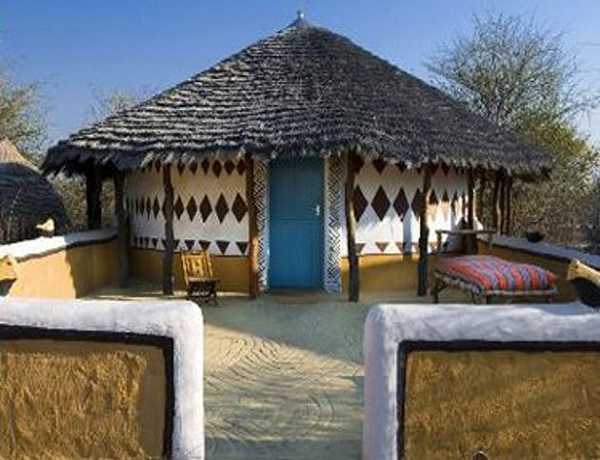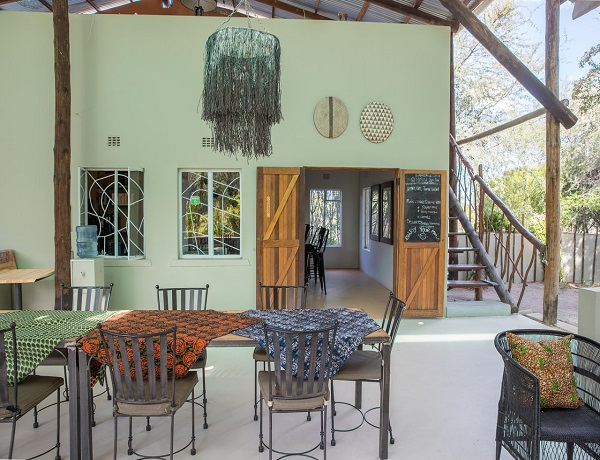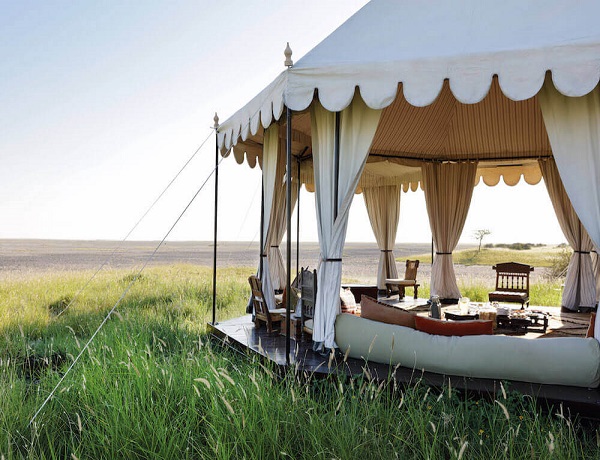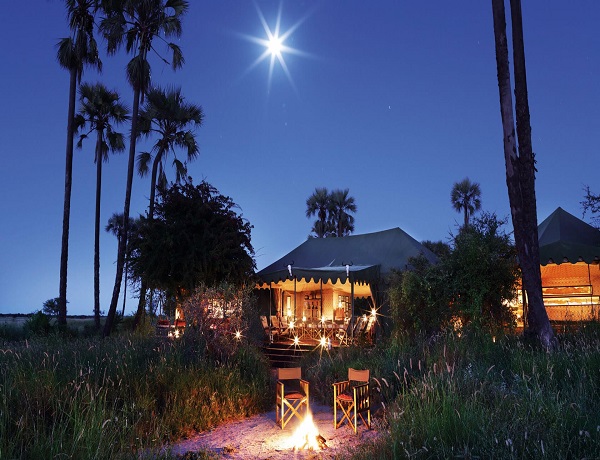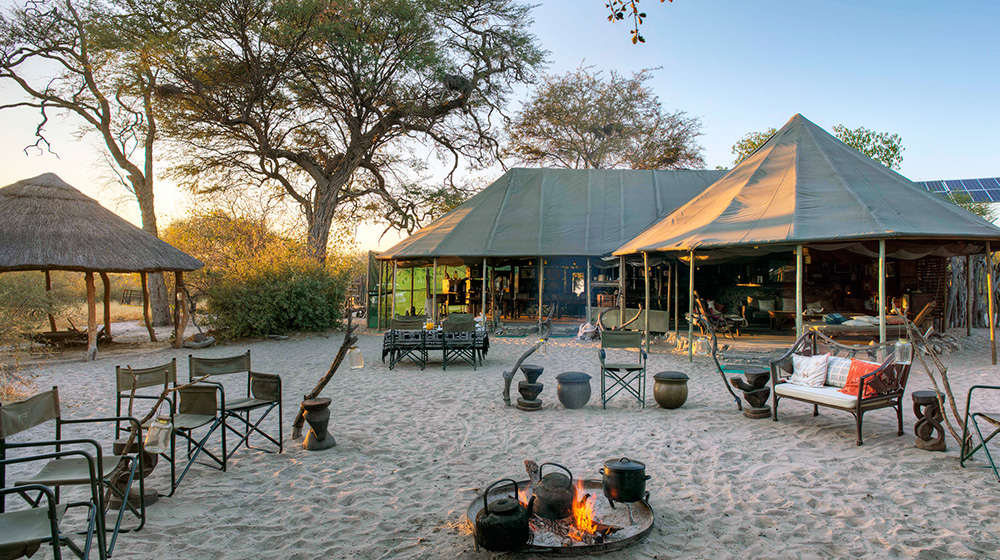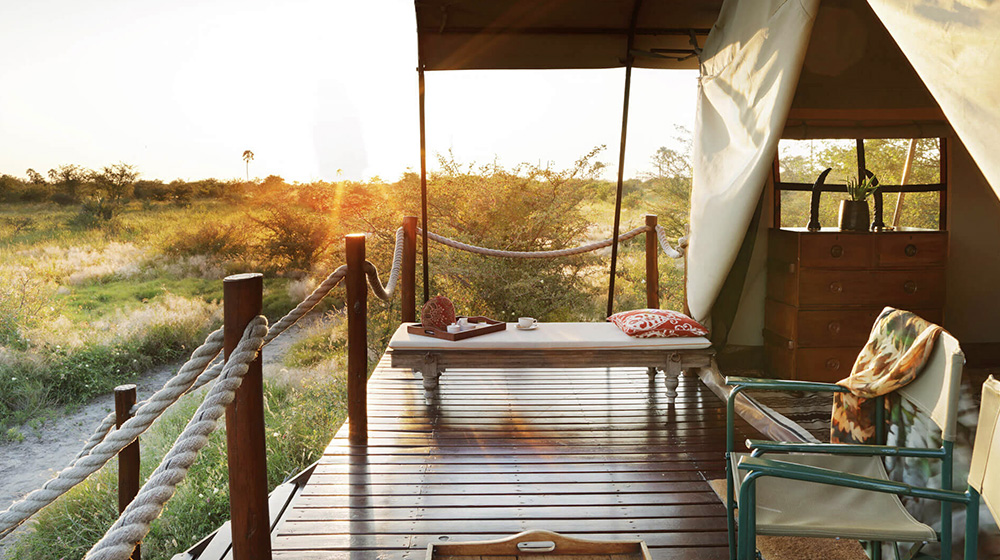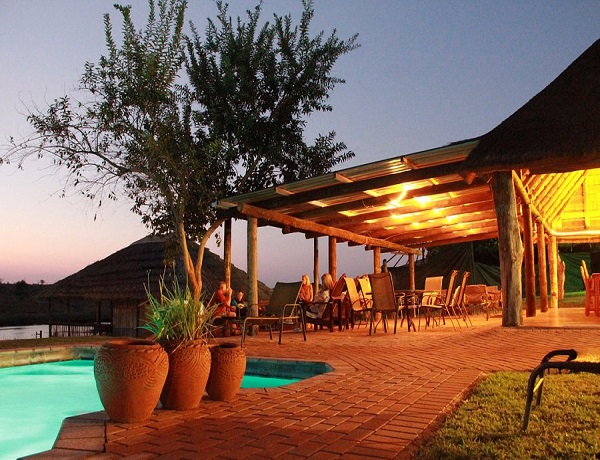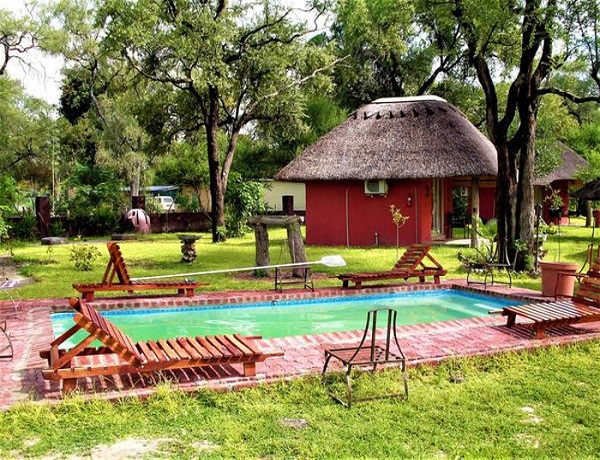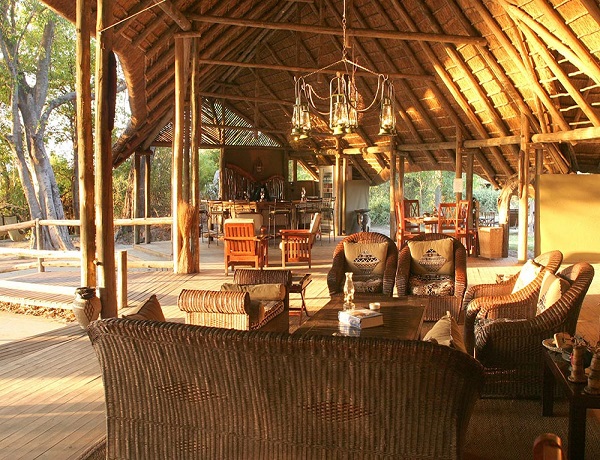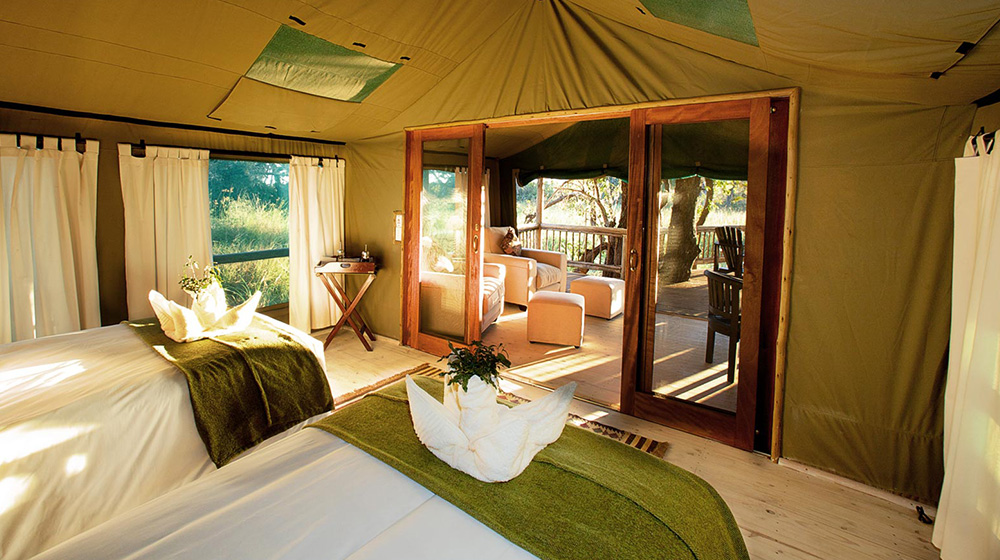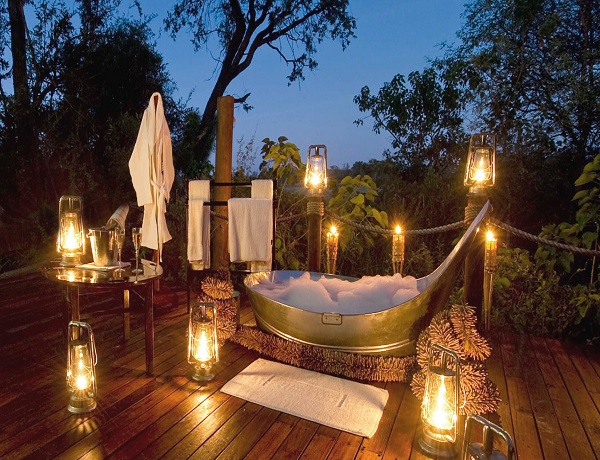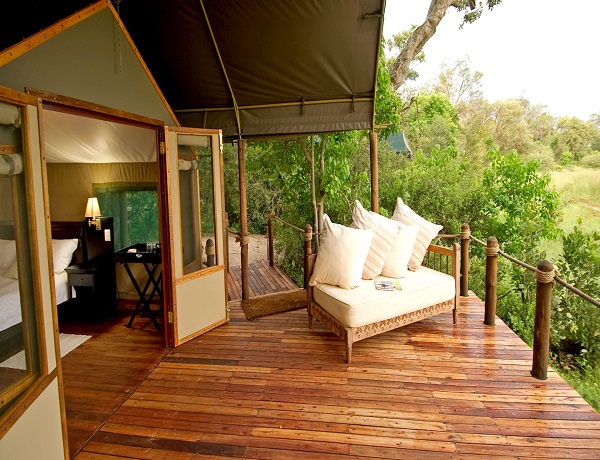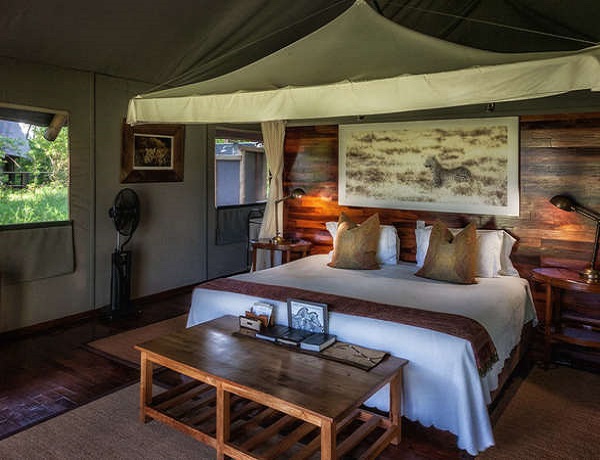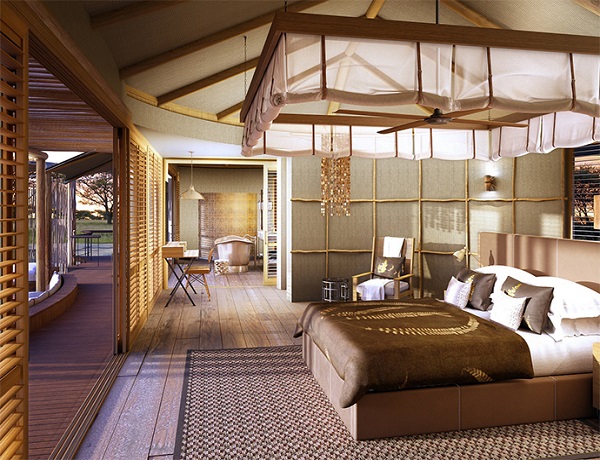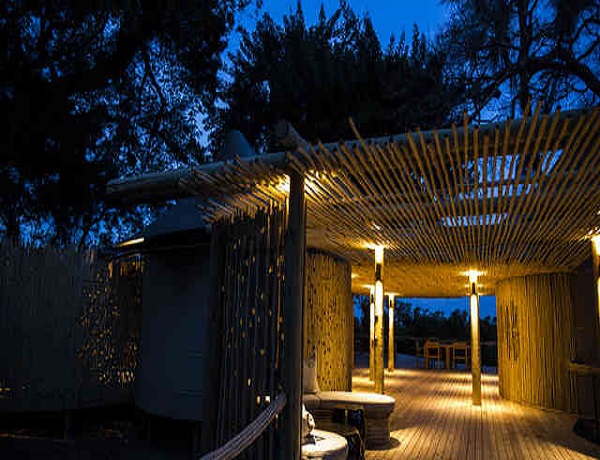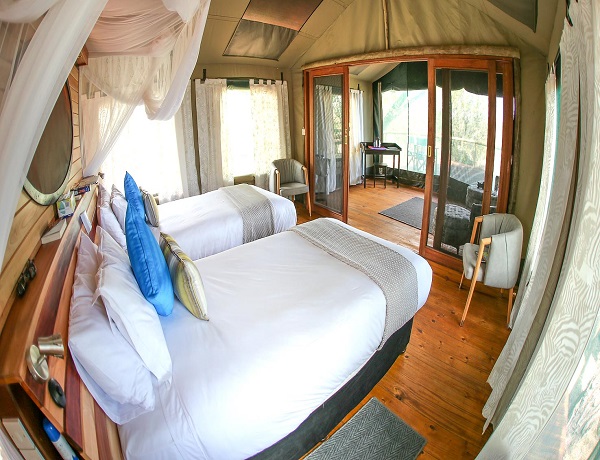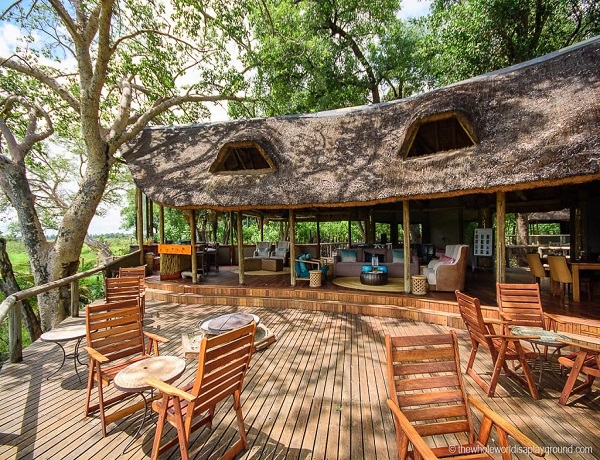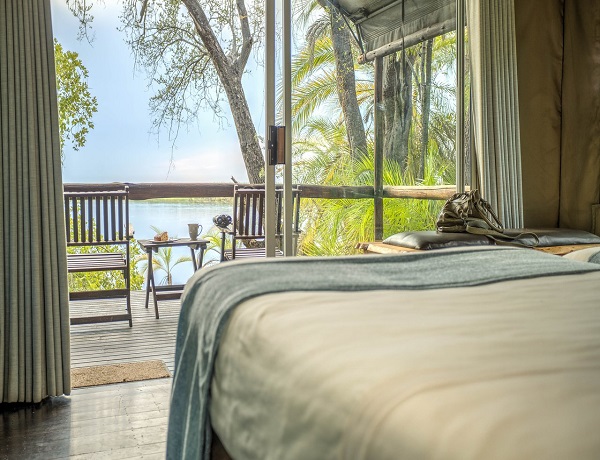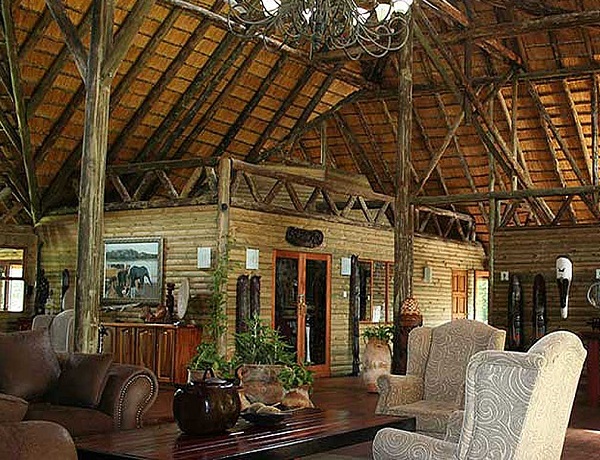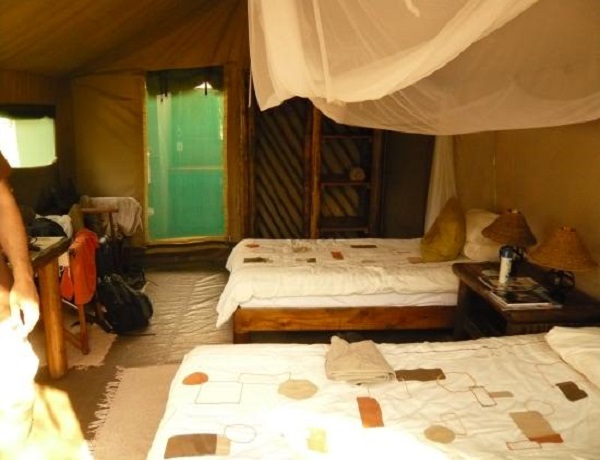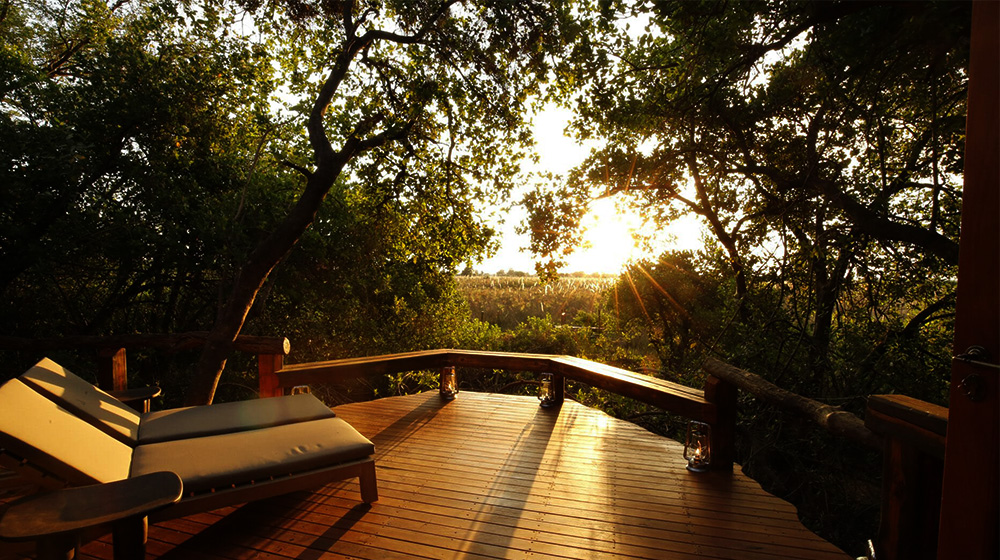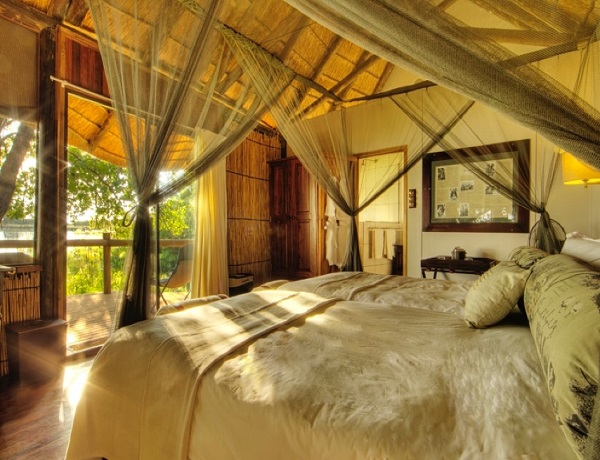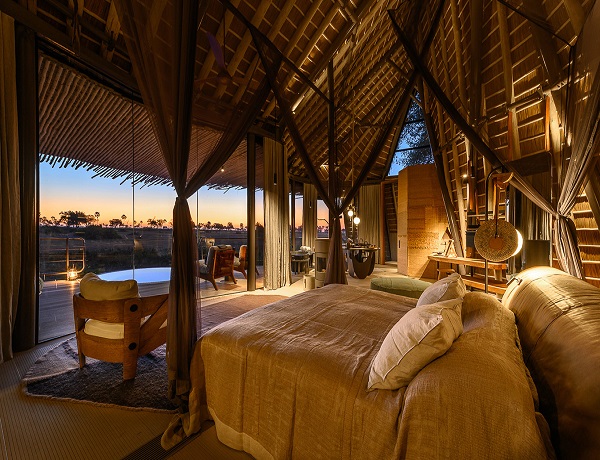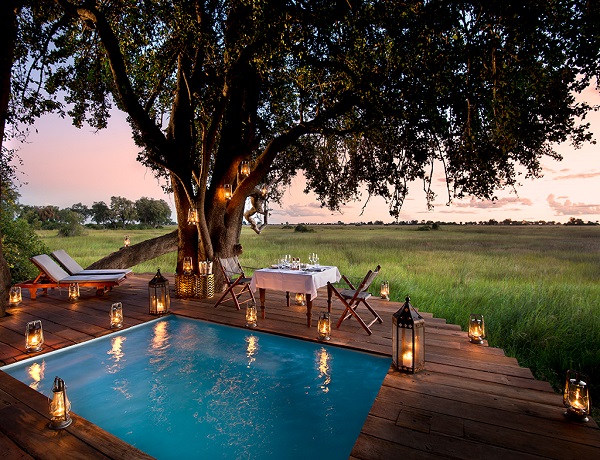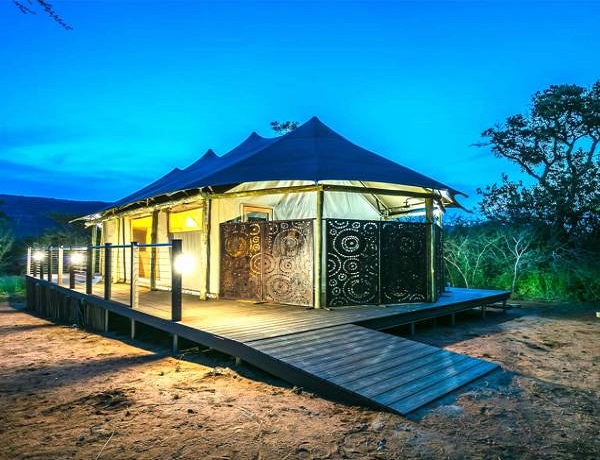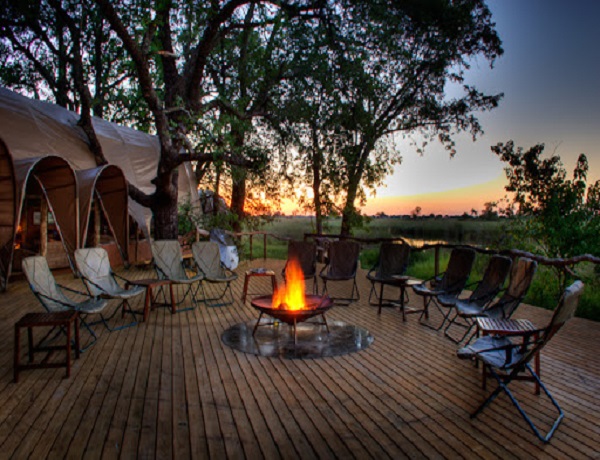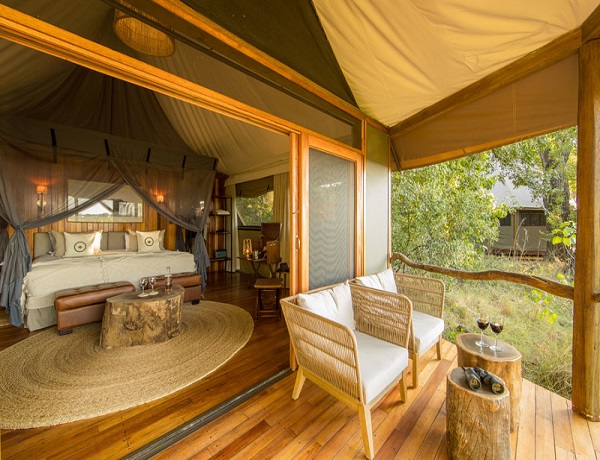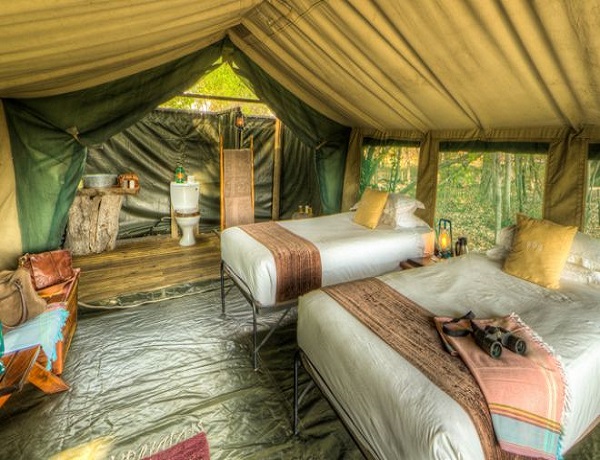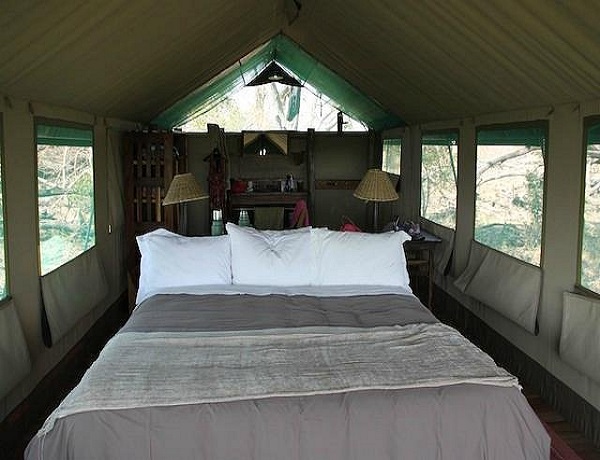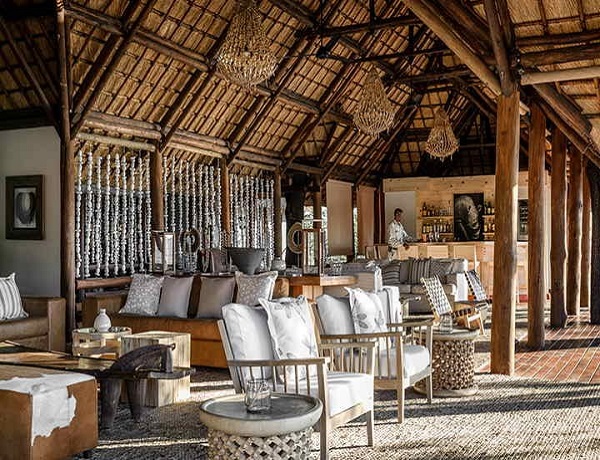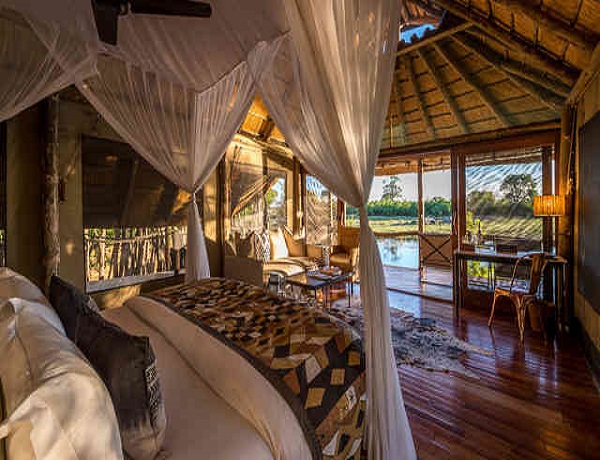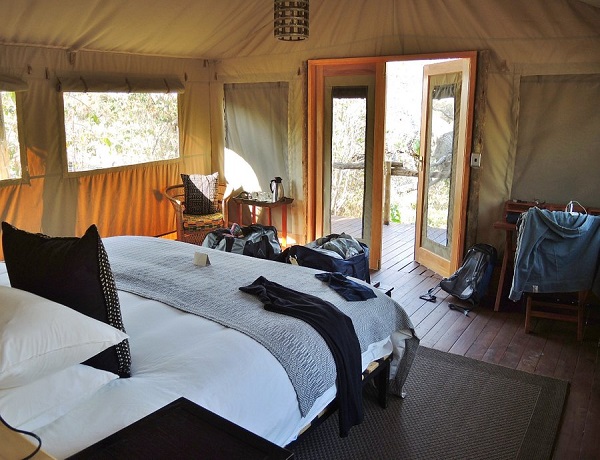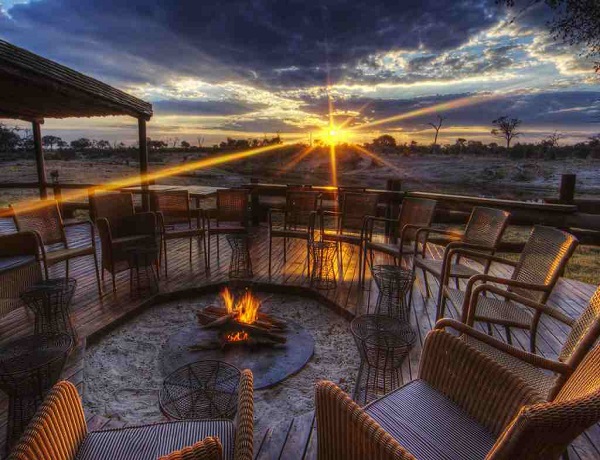Call Us
8:00am - 17:00PM
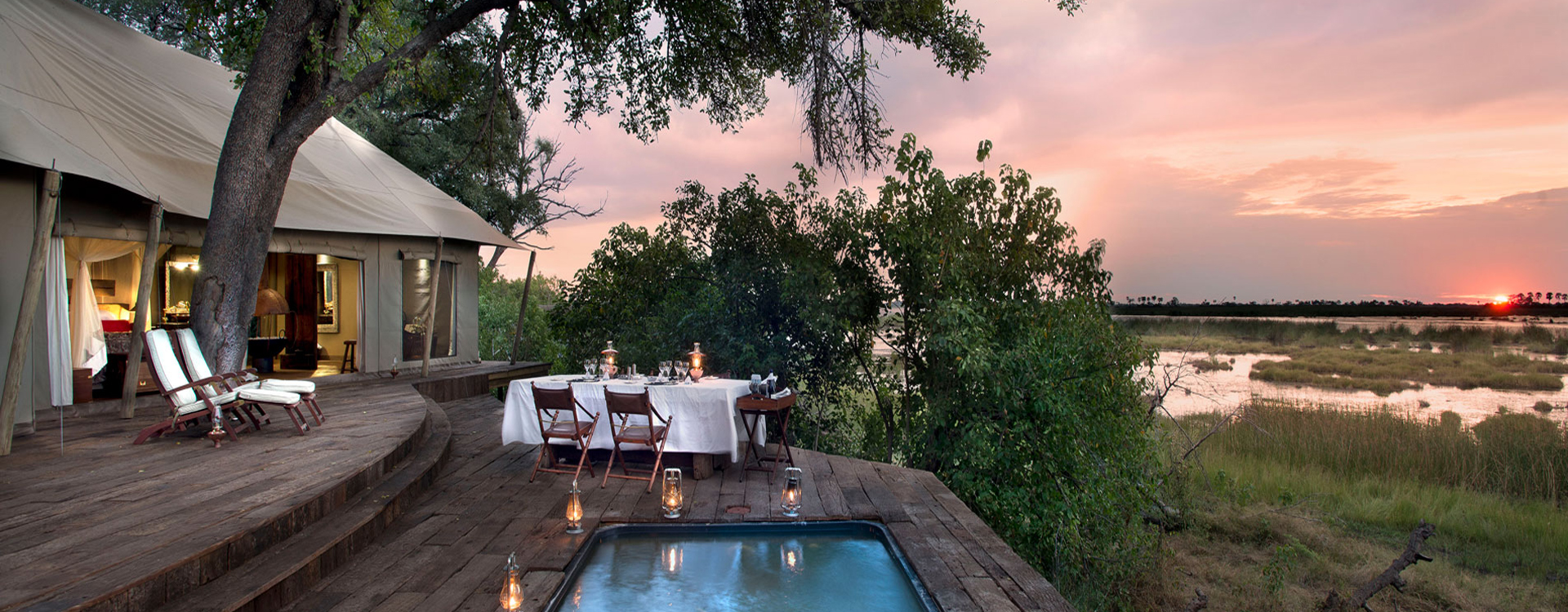
Botswana
About Botswana
Welcome to Botswana, a place where nature’s wonders come alive. It's home to the wild Chobe National Park, the green Okavango Delta, the endless Makgadikgadi Salt Pans, and the sprawling Central Kalahari Desert. The country’s focus on keeping nature untouched makes every Botswana Safari a deep dive into the raw beauty of the wild.
For animal lovers and nature enthusiasts, Botswana Safari Tours are a dream come true. Here, you can get up close with everything from majestic lions to tiny, colourful birds. If you’re ready to experience the real magic of Africa, Botswana is waiting to show you, its treasures.
Experience Botswana Wildlife from big to small on your Botswana Tours. Book your stay at one of the best Botswana Accommodations for a long lasting impact. To truly discover the Botswana Tourist Attractions, we’ll create a tailor-made Botswana Holidays. It helps to give you the options to choose between the variety of lodges and luxury tented camps, finding the perfect game viewing, locations and Things To Do In Botswana for you.
Interesting Facts

Botswana Things To Do-Bird Watching, Game Drives, Guided Walks

Botswana Tourism-Stunning Beauty, Unimaginable Vastness

Botswana Wildlife – Lion, Leopard, Elephant, Black Rhino & Buffalo

Botswana Safari Packages- Top Most Safaris, Wildlife Tours & Activities

Botswana Safari Cost - Between $125 & $1,500 Per Person Per Night

Botswana Travel Facts- Population, Airport, Flights, Culture & Map

Botswana Travel Requirements- Visa, Currency, Travel Insurance & Packing List

Botswana Accommodations- Budget, Midrange. Luxury Camps & Lodges

Best Time To Visit Botswana - Between May & October during the dry season
Botswana In 60 Seconds
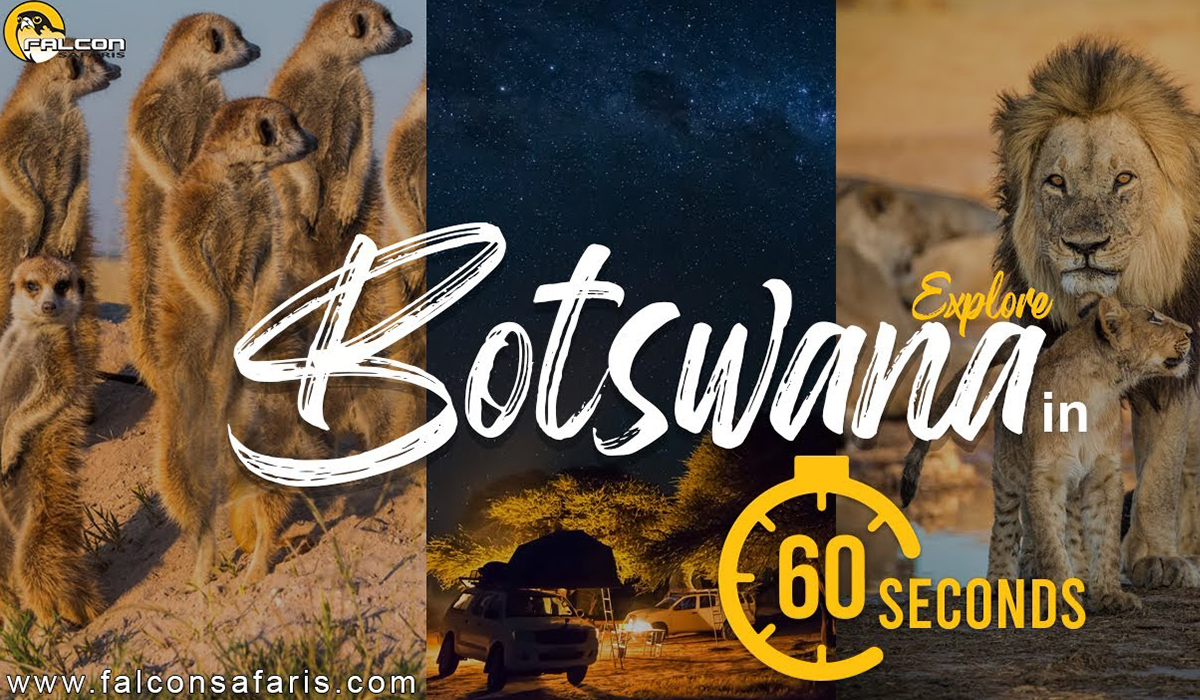
Play Video
Virtual Trip to Botswana
Falcon Safaris is taking you on a journey to the earths most beautiful and fascinating Botswana Tourist Places. Get inspiration and essentials with our Botswana Travel Guide videos and documentaries for your next Botswana Safari, holiday, and vacation or simply enjoy and get tips about all the beauty in the world...
Botswana is yours to discover. Curate your Botswana Travel experience and allow us to do the rest for you!
National Parks To Visit In Botswana
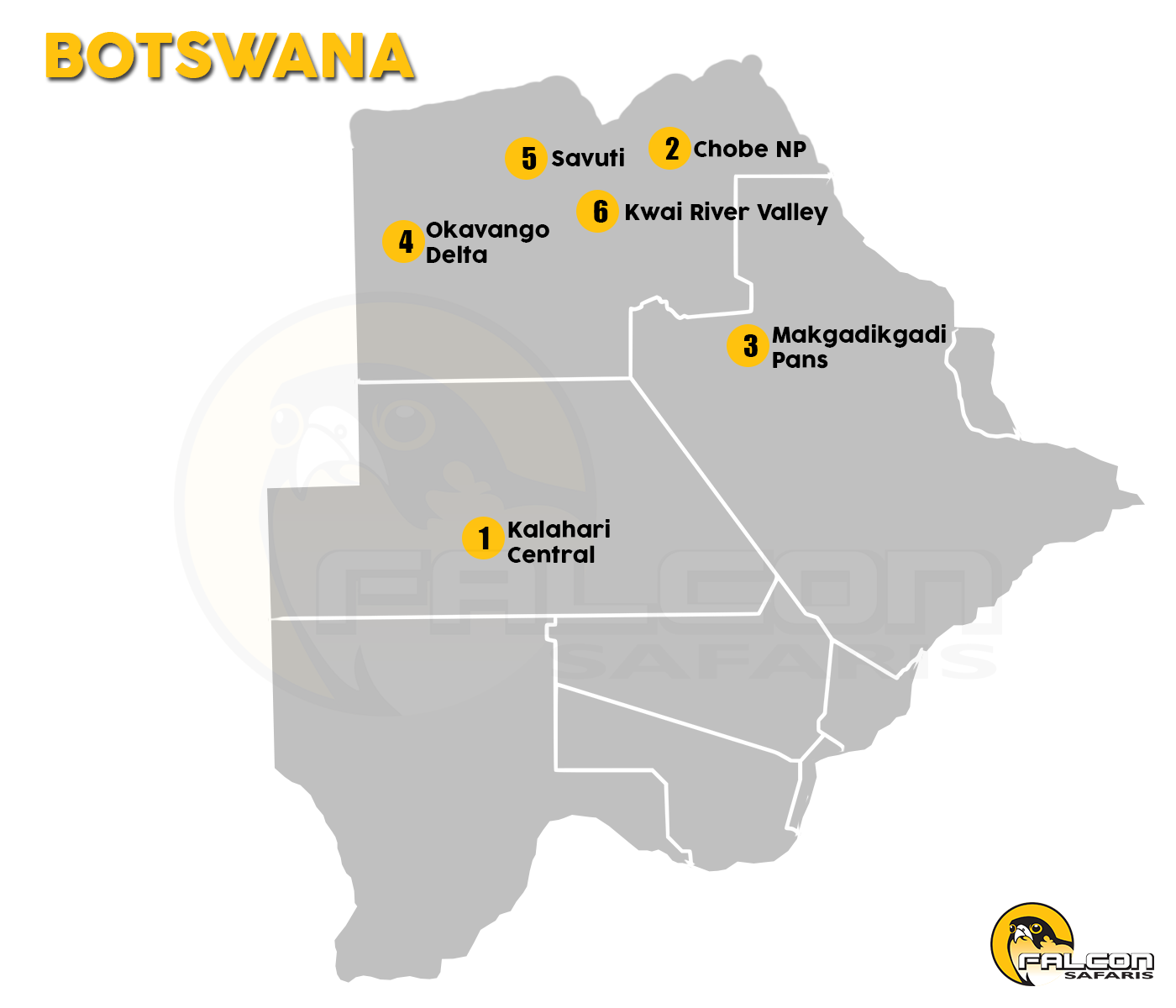
Botswana Tours & Safaris
We Think You’ll Love
Travel Guide For Botswana
We Think You’ll Love
Why Go to Botswana?
Botswana is a great safari destination that boasts outstanding wildlife density and variety, and it is wild and organic without fences and developed tourist facilities. In this sense, it attracts adventurous travellers who are loving about nature and wildlife experiences and who are not nervous in the presence of wild animals. Keen photographers would benefit greatly from a Botswana Holiday at different times of the year, as varying locations offer unique and interesting natural scenery, not to mention superb wildlife activity to capture.
Botswana’s primary attraction is its vast wilderness. From the endless palm-covered islands of the Okavango Delta, to the moonscape saltpans of the Makgadikgadi region, it’s the perfect destination for anyone seeking pristine, unfenced surroundings.
The terrain in Botswana is rough with plenty of dust, thick sand, and seasonal flooding, so exploring the country by road – which includes long morning game drives in areas like Savuti – means packing an adventurous spirit and tolerance for the natural elements. On the other hand, Botswana has some impeccable luxury options, with exclusive airstrips, seamless service, world-class food, and supreme comfort, which bring extreme comfort to visitors willing to pay.
Botswana is easily sewn into an itinerary including Victoria Falls and the Kruger National Park, Zimbabwe’s Hwange and Mana Pools, Zambia’s South Luangwa, and Namibia’s Caprivi Strip; so travellers planning a southern Africa trip should consider including Botswana.
Best Time To Visit Botswana
Botswana is the top most safari destination with the best time to visit between June to August. Also, April and May are the Best Time For Safari In Botswana, however, you should expect sprinkled rain showers.
- Average summer temperatures: 18°C to 38°C
- Average winter temperatures: 6°C to 27°C
- Rainy season: October/November to March/April
The Best Time To Visit Botswana — especially for those wanting to go on a Botswana Safari — is during the dry season (May through October), when the grass is low and the trees have less foliage, making it easier to spot animals.
Botswana Climate is mostly hot and dry, and the country's dry season, a popular time to visit, is countered by a distinct rainy season that offers benefits of its own.
In summary, the Best Time To Go To Botswana is:
- May to September is the most popular time to visit, with clear days and cooler temperatures. This is the best time to for game drives giving you high chances of seeing some of the big five and some beautiful birdlife.
- October and April are shoulder seasons between summer and winter and therefore are still likely to have fairly dry, bright days.
Get the Best Time To Visit Botswana for climate charts on the best wildlife-viewing times.
Flights & Getting To & Around Botswana
The easiest and fastest way to Travel To Botswana is a connecting flight from Johannesburg International Airport (O.R Tambo) in South Africa, although there are also connecting flights from Cape Town and Windhoek (Namibia) available.
From the moment you reach at Botswana, our Travel guides will be there to welcome you. Also we ensure the smooth transfers from airport to camp, camp to camp, and back to your departure point, mainly the Airport.
Gaborone: Fly to Sir Seretse Khama - Botswana's main international airport - from Johannesburg. Most Botswana Safari travellers avoid it and fly directly to one of the two airports below.
Maun: Daily Botswana Flights from Johannesburg and Cape Town will provide easy access to the Okavango Delta's gateway airport.
Kasane: Fly to Chobe's gateway from Johannesburg, Gaborone or Maun.
For travellers, it is more common to fly into Maun Airport (MUB) and Kasana Airport (BBK). When combining a Safari In Botswana with a visit to Victoria Falls, it is common to fly into Maun and depart from Victoria Falls Airport (VFA) in Zimbabwe or Livingstone Airport (LVI) in Zambia.
Charter flights on small aircraft are the best way to getting from place to place in Botswana. Also game drives directed in open-sided 4X4 vehicles.
What To Pack For Botswana Safari
When Packing For A Botswana Safari, practicality is key. In the summer months, choose clothing in neutral colours and wear lightweight long-sleeved clothing at night and in the early mornings to protect against mosquitoes.
It is best to layer up as the days are still warm and sunny but the night time temperatures can drop close to freezing point during the cooler months.
The most practical items to pack for your Botswana Safari are:
- Clothes in khaki, green, beige and neutral colours
- Long-sleeved shirts that offer protection from the sun and mosquitoes
- T-shirts
- Shorts or a light skirt
- Jeans or safari trousers for evenings and cooler days
- Jackets and sweaters for early morning and late afternoon game drives
- A lightweight waterproof jacket in case of rain
- Swim and beachwear
- Comfortable walking shoes
- Sunscreen, sunglasses, a hat, insect repellent, moisturiser and lip salve
- Binoculars and camera equipment
Visa & Passport Requirements For Botswana
A Botswana Visa for tourist can be obtained on arrival at the airport. Citizens of the Britain, Australia, Canada, USA and some EU countries do not require a visa for stays of up to 90 days.
British citizens don’t need a visa when travelling to Botswana if they are staying for 90 days or less. Your passport must be valid for an additional six months from the date of your entry in Botswana. You also need three clear pages in your passport.
Visitors holding passports from countries that are classified as ‘exempt’ do not need to apply for a visa prior to arriving in Botswana. Instead, they are issued with a short-stay visa at the point of entry for a period of time relevant to the status of the visitor’s country. The time it takes to process a Botswana Visa is 21 working days, this is for all visa types and for all non-exempt countries. Unfortunately, Botswana does not yet allow e-visas.
It is advised to apply for your Botswana visa 1 to 2 months before your trip. The duration of a Botswana visa depends on the number of entries it allows. Botswana multiple entry tourist visa allows a stay of 3 months and is valid for 3 months. While a single-entry visa allows a stay of one month and is valid for one month.
Please check for the latest updates about Visa with your local Botswana Embassies or Consulates, or travel agents, before your departure. It is vital that you carry a valid passport to ease your stay.
Botswana Food
You will find different Botswana Food depending on the region you visit.
Sorghum and pearl millet are important food crops in Botswana. Normally it is cultivated in the Kalahari. Also many people eat bogobe. The local beef is famous. Seswaai is unique to the country but Botswana Cuisine also borrows from other parts of Africa. Pap, samp, and the tasty sounding mopane worms are popular.
The Most Popular Food In Botswana includes…..
- Dikgobe
- Mogodu
- Seswaa
- Vetkoek
- Phaphatha
- Traditional Style Chicken
- Porridge or “bogobe”
- Traditional Drinks
Many soft drinks and alcoholic drinks are produced in factories in Botswana, including Fanta and Coca-Cola. Local brands are Castle and Lion beers. Milk is fermented to make madila (sour milk) which is eaten on its own or added to porridge. A favorite non-alcoholic homemade drink is ginger beer.
Botswana Wildlife
Botswana Wildlife offers the wild and remote, with some of the most prolific Animals in Africa. Botswana has a prosperity of big African animals such as elephant, giraffe, hippo, buffalo and zebra. Big cats aren’t as widespread, but there are still quite lions to spot. Rhino is also making a comeback here. You can find endangered antelopes and African wild dogs in some of the country’s parks.
The wilds of Northern Botswana safeguard the largest elephant population in the world. Huge breeding herds and large solitary bulls traverse the landscapes of Chobe National Park and Moremi Game Reserve.
- Chobe also boasts the highest bird species diversity in Botswana (468 species), including birds found nowhere else in the country.
- Savute, in the western Chobe region is notorious for its large lion prides, historically numbering up to 30-odd individuals. Savuti’s vast savanna plains are perfect for enjoying sightings of Burchell’s zebra, tsessebe, giraffe, and impala.
- The Okavango Delta is also the best place to see the near-endemic Slaty Egret, Wattled Crane, and special waterbirds such as the Lesser Jacana, White-backed night heron and African skimmer.
- At Makgadikgadi Salt Pans, Shallow waters flood over seemingly endless pans, attracting thousands of flamingos. Along the Boteti River you can watch Southern Africa’s largest zebra migration here.
Is Botswana Safe?
Botswana is considered as one of the safest countries in Africa to travel in. Also, tourism is welcomed and valued by the local people in general. There is no reason for tourists to feel unsafe anywhere in Botswana in terms of crime. Botswana Travel Safety is always prioritized by Falcon Safaris.
To stay safe on Botswana Safari, just follow our instructions. When on a self-drive safari, get familiar with the rules of the parks and reserves, never approach animals too close and don’t leave your vehicle outside designated safe areas.
If you travel to remote areas, plan your trip ahead of time and make the travel and accommodation arrangements in advance. Take emergency supplies (including water and fuel) and be prepared for off-road driving conditions. In extremely remote areas, travel in a group or with a satellite phone in case of a breakdown.
Taking photographs or using video equipment near military and government installations is prohibited. Always ask permission before taking photographs of people in Botswana.
Botswana is one of the few African countries that it is safe for children to visit. Travelling with your child in Botswana should not have many problems. Children should remain within your sight at all times, especially when you are travelling.
Botswana Currency
US Dollars are normally used in Botswana. But, it is significant to bring local currency in smaller denominations during your Botswana Safari Trip, for small payments, tips, etc. Your Money can be swapped at Botswana Airport, Bureaux de Change, authorized dealers, and banks.
The currency in Botswana is Pula, which is a Tswana word meaning “rain”. Rain is cherished and welcomed because it brings life to the Kalahari. Pula is used throughout the country and is the accepted form of payment in restaurants, shops, and at hotels or lodges; however, most places in Maun, Kasane, Francistown, Gaborone, and other major towns accept international bank cards. ATMs are located in the above mentioned towns and one can withdraw cash before heading into the parks and reserves where there are unlikely to be card facilities. Foreign currency is often accepted as a tip or gratuity to helpful staff and safari guides.
Botswana Banks accepts the following foreign currencies: US Dollars, Pounds Sterling, Euro and South African Rands in cash.
Credit and debit cards, including International Visa and MasterCard, are accepted at most lodges. However, Express and Diners Club are not accepted by the banks of Botswana either by the camps.
Botswana Culture
Botswana has a typically homogenous culture with strong beliefs. Most people are Christian and Tswana-speaking but English is widely spoken. Also, many San Bushmen still follow their traditional way of life. Most of the Botswana Population lives especially in the capital city of Gaborone, leaving much of the country fully wild and unoccupied.
Moreover Botswana Culture is famous every year in a memorial festival called 'Letsatsi la Ngwao' - Botswana Culture Day.
Travellers greeting local Batswana will notice that the spoken “dumela rra/mma” (man/woman) is accompanied by a handshake with the right hand while the left hand moves to gently grasp one’s own right forearm. This greeting is commonly shared between local people, and tourists are welcome to take part in the tradition.
A large number of people from Botswana and indeed southern Africa belong to a religion called Zionism, which is based on a fusion of African traditions and the Christian faith. Members of the ZCC (Zion Christian Church), by religious guidance, do not eat pork, drink alcohol, or consume drugs, while some solely consume the white meat of chicken and fish, eradicating red meat from their diets altogether.
Zionists can be recognised by some items of clothing, which on days of worship consist mostly of yellow and green, while most members often wear a lapel or badge of green cloth adorned with a metal badge indicating which branch of the church they belong to. Men also wear hats to indicate their religious affiliation.
Botswana Travel Insurance
Complete Botswana Travel Insurance is encouraged for anyone travelling through Botswana. It is no secret that these adventures of a lifetime come with their associated risks, i.e. wild animals, challenging terrain and road conditions, and poor public health services, so taking out travel and medical insurance that will cover specific area-related medical emergencies or unexpected incidents is the safest and most recommended way to go.
Before embarking on a Trip To Botswana, travellers should make sure they have comprehensive medical cover for specific activities they might like to participate in while on Botswana Holiday. One should be covered for any incidents relating to wild animals and should have authorisation for a medical evacuation, so that the necessary measures can be taken in an emergency in a remote area. Taking out insurance to protect cash, camera equipment, and baggage is also advisable, and should fall under comprehensive cover. It is recommended that prior to departure, travellers have a copy of their medical and travel insurance policies and an emergency phone number to call so that this information is available when fellow travellers, guides, lodge staff, or emergency personnel might need it.
Travel Insurance For Botswana should also be taken out to cover the traveller in case of an unexpected change in holiday itinerary or an unforeseen cancellation. One should also ensure they have access to money via credit card or an electronic funds transfer, as it is likely that payment for medical treatment will have to be paid up front and then claimed back from the insurance company later.
Botswana Safari Cost
Planning your adventure with Falcon Safaris means getting a clear picture of the Botswana Safari Cost. Irrespective of whether you're dreaming of basic camping or luxury lodges, we've got all the details to help you budget for an unforgettable journey.
Detailed Botswana Safari Cost Breakdown:
- Camping: Immerse yourself in nature with our camping options starting at $250 per day for a private setup and $200 for joining a group. Perfect for those who love the great outdoors.
- Budget Accommodations: Enjoy comfort without breaking the bank, with private stays at $250 and group options at $225 per day.
- Mid-Range Options: For a blend of comfort and adventure, choose our mid-range stays at $600 for private tours and $450 for groups.
- Luxury Experiences: Indulge in unparalleled service and settings at $1,200 for private experiences and $1,000 for groups.
- Ultra-Luxury: Dive into the epitome of safari luxury, with prices starting from $2,500 per day for private tours.
Key Considerations for Your Safari Planning:
Below are must-add components that make up your Botswana Safari Cost:
- Park Entrance Fees: A vital component of your safari budget, these fees vary based on the park and your residency status. They support conservation efforts and park maintenance.
- Botswana Safari Accommodation Cost: Prices fluctuate depending on the length of your stay, the season, and the level of luxury you choose. Whether you prefer the rustic charm of camping or the lavishness of luxury lodges, we offer options to suit every taste.
- Additional Costs to Anticipate: Beyond the basics, consider visa fees, tipping, travel insurance, and the cost of international flights to Botswana.
Let Falcon Safaris be your safari partner and guide you through the planning process, ensuring your Botswana Safari Tours are filled with adventure, exploration, and breathtaking wildlife encounters, all within your budget.
best month to Visit Botswana
We Think You’ll Love
Peak
Low
Mixed
Botswana Safari in January
This is one of Botswana’s highest rainfall months with an average of 100mm falling in often unpredictable and heavy downpours, and as a result, January is not the most popular time to visit.
It does mean that Botswana Safari Prices are a lot lower, making this prime safari destination more accessible to travellers on a lower budget.
Birding is excellent at this time of year; however the water levels in the Delta are low, and the presence of water means wildlife is scattered.
Botswana’s climate is fairly regular and consistent, with hot, wet summers and mild, dry winters. The north gets the most rain, and precipitation decreases steadily as you head south. The most extreme conditions are in the Central Kalahari, but even there nights seldom drop below 15°C.
Botswana Safari in February
Perhaps Botswana’s rainiest month with long showers and hot and humid weather, with temperatures ranging from the mid-20s to 30s(C).
The heavy rain makes some parts of the parks (i.e. Moremi) either inaccessible or very tricky to navigate by road.
But in the Central Kalahari Game Reserve, the landscape is a green, grassy paradise. With lots of newborn antelope and a great variety of birds, this is a great time for Botswana Safaris.
Botswana Safari in March
The steady drop in temperature and rainfall continues throughout March, but hot days across the country can still reach the mid 30 °C.
In the south and centre of Botswana, cold nights can drop to 10°C but tend to stay between 15°C and 20°C in the north.
There are still afternoon thunderstorms every few days, which keep the atmosphere clear. March remains the Best Time to Visit Botswana for spectacular landscape photography.
Botswana Safari in April
The April/May shoulder season is an excellent time for Botswana Safari Holidays. By April, rainfall has almost completely ceased across the country, although there may still be a few scattered showers.
Everywhere is still green and most pans still hold some water, but what is available is getting scarcer, forcing both predators and prey to stay near.
Average daytime temperatures are now about 30°C and nights hover around 15°C – pleasant enough for long evenings around the campfire, while also allowing for a more comfortable sleep.
Botswana Safari in May
May marks the onset of Botswana’s dry winter season, typically characterized by a lack of rainfall throughout the country.
Average daytime temperatures fluctuate between 25°C to 30°C, often warmer in the north and cooler towards the south. Evenings in the north can dip below 15°C, and by month's end, nights in the Kalahari may approach freezing temperatures.
May stands out as an ideal time for Botswana Safari Tours, offering excellent game viewing opportunities, mild and dry weather conditions, and the tranquillity of less crowded campsites and parks—conditions that shift as the season progresses into its busier months.
Botswana Safari in June
June is another excellent month to visit Botswana, although the parks get busier from around the 20th as schools in neighbouring South Africa break for winter holidays.
These usually run from the last week of June to mid-July and campsites across Botswana book up quickly. Late June marks the start of the high season for Botswana Safari Tours and July to October is the busiest time. Make sure you book your campsites well in advance.
June and July are Botswana’s coldest months and night-time temperatures in the Kalahari can drop below freezing. In the north, it rarely freezes, but lows of 5°C are common and morning game drives can be very cold.
Daytime temperatures are roughly the same across the country, averaging between 20°C and 25°C. As ever, the north is warmer and hot days may still reach 30°C.
Botswana Safari in July
July marks the beginning of Botswana’s busy season, and Botswana Safari Packages for camps and lodges can be booked out well in advance.
The country’s parks and reserves feature a limited number of public camping areas, which are often small and dispersed.
This scarcity makes securing a spot during peak season a challenge, yet ensures that even at full capacity, Botswana’s vast parks never feel too crowded.
Botswana Safari in August
August remains extremely dry across Botswana, although by the end of the month, there may be a brief shower somewhere in the south.
Temperatures, however, are already beginning to rise and while nights in the Kalahari can still fall below freezing, sub-zero mornings are the exception, not the norm.
Daytime temperatures also climb rapidly during August and hot days across the country will regularly top 30°C. August is a very popular month for Botswana Safari Trips and campsites and lodges should be booked far in advance.
Botswana Safari in September
Northern Botswana remains completely dry during September, though the centre and south may welcome a few scattered showers.
The temperatures steadily rise, staying above 0°C even in the Kalahari, with average lows warming to between 10°C and 15°C—cooler in the south and toastier in the north.
By month's end, days across the country become intensely hot, often soaring above 30°C and nearing 40°C in Maun and Kasane.
September's charm makes it a bustling period for Botswana Safari and Tours, necessitating early bookings for the sought-after northern camps.
This time is particularly magical along the Chobe and Linyanti Rivers, where thousands of animals, especially elephants, converge for water.
Capable of consuming up to 200 litres daily, these elephants often dash to the riverbanks at dusk, their excitement palpable and trumpets echoing, a remarkable sight for any visitor.
Botswana Safari in October
October marks the peak of the heat in Botswana, with temperatures soaring above 40°C in the northern regions. The south experiences slightly milder conditions, though still intensely hot.
Evening temperatures in the south range between 15°C and 20°C, while the far north enjoys warmer nights.
The onset of the rainy season begins earlier in the south and centre, where the first afternoon thunderstorms offer a welcome respite. In contrast, the north usually remains dry until the month's end, with the rains not fully setting in until mid-November.
Despite the challenging heat, October remains a favoured time for Botswana Safari Holidays, particularly along the Chobe River, renowned for its congregations of elephants seeking hydration.
Botswana Safari in November
November is the spring shoulder season in Botswana, a time of soaring thunderclouds, returning migrant birds and, once the rains arrive, fields of newborn calves.
It’s still very hot, with daily highs of 35°C to 40°C across the country, and it can get even hotter in the north where nights are humid and often well over 20°C. The start of the rainy season is always hard to predict, but good years can see early November rainfall in the south and central Kalahari, while Moremi and Chobe usually have to wait until later in the month.
This transitional period makes for an exciting and dynamic Botswana Safari, as the landscape transforms and wildlife gathers in anticipation of the rains.
Botswana Safari in December
December is Botswana’s wettest month, with afternoon thunderstorms. The rains bring cooler air, but daytime temperatures remain high, averaging in the low 30 °C, with the potential for days reaching 40°C or more. Nights tend to be humid and warm, often not dropping below 20°C. The clear atmosphere and dramatic thunderclouds present the perfect backdrop for breathtaking photographs, offering a spectacle of a spectacular thunderstorm every few days that can be witnessed on Botswana Tours.
Botswana Safari Activities
We Think You’ll Love
Bird Watching in Botswana
There are some excellent places for Bird Watching In Botswana, a key activity in Botswana Safari Tours. Chobe’s impressive diversity of habitats makes it home to the highest variety of bird species (468) in Botswana.
A drive or boat cruise along the Chobe River will offer plenty of opportunities to see the conspicuous African Fish Eagle. African Skimmers arrive at Chobe’s riverbanks at the beginning of winter.
Other migrant species are Yellow-billed Kites, Woodland Kingfishers, and the very striking Carmine Bee Eaters, and other common water birds of the area are African Spoonbills, Squacco Herons, Open-billed Storks, Black Herons, Great Egrets, Pied Kingfishers, African Jacanas, and Yellow-billed Storks.
In Chobe’s forested areas, birders should look out for Schalow’s and Purple-crested Turacos, Trumpeter and Crowned Hornbills, Crested Guinea Fowls, Racket-tailed Rollers, Brown-necked Parrots, and Narina Trogons (summer only).
The Linyanti Swamps are home to the endemic Slaty Egret and a good place to see small waders such as the Lesser Jacana and African Painted Snipe. Gregarious Southern Carmine Bee Eaters nest on Linyanti’s dry floodplains, an unusual choice for a bird that usually favours riverbanks.
Boat Cruise in Botswana
A Botswana Safari can be significantly enhanced by a boat cruise, organized by the myriad riverside safari operators. The Chobe waterfront, near the town of Kasane, is the most commercial sector of Chobe National Park, dotted with several large hotels and lodges.
Notably, Chobe Game Lodge is the sole lodge within the park’s river boundaries, offering direct access to the Chobe Riverfront's majestic scenery.
This part of Africa showcases her beauty unreservedly, with the Chobe River's vast waters and the adjoining floodplains presenting an unparalleled spectacle best enjoyed from the water.
Cruising at eye level not only provides exceptional Botswana Wildlife and bird photography opportunities but also intimate encounters with African skimmers, yawning hippos, sunbathing crocodiles, and occasionally, lions resting in the shade of riverside trees.
Horseriding in Botswana
Horseriding In Botswana is run by Ride Botswana on Uncharted Africa’s private concessions. Two-hour long trips as well as multi-day riding safaris suitable for more experienced horse riders can be arranged.
Exploring the Makgadikgadi from the saddle of a well-trained horse can be a truly marvellous escapade. It is a completely different Botswana Safari Experience, evocative of the adventures of Africa’s early European settlers who often chose this way of moving through the great savannas of Africa.
Cantering on the remote expanses of the salt pans and surrounding coppery grasslands is to feel a giddy, soaring sense of freedom. Being on a horse is an unobtrusive way to get up close to herds of zebra and other plains game while cheetahs and lions can be gazed at from a distance.
Mokoro Safari in Botswana
The most familiar way to explore the Okavango’s meandering channels and hidden lagoons is on a guided Mokoro Safari in Botswana. These traditional wooden dugouts are still used extensively in the region for fishing and transport, especially near Maun and Seronga.
A mekoro trip gives you the best possible chance to catch a glimpse of the rare and secretive sitatunga antelope. Sitatunga loves quiet backwaters with floating papyrus islands and usually feeds while being partially submerged in water.
They are expertly designed for swamp life with splayed, elongated hooves that enable them to tread soft marshlands with ease. When a mokoro approaches, these shy ungulates will commonly swim away, with only their nuzzles sticking out of the water.
Other interesting creatures to look out for are colourful Painted Reed frogs and tiny Long Reed frogs (usually hugging onto reeds), malachite and pied kingfishers, pygmy geese, African and lesser jacanas and day and night water lilies.
Mokoro Trips in Botswana are available at many of the water-based camps and lodges in the Okavango and Maun for self-drivers. It’s a good idea to check with the safari operator you booked through beforehand because in many places mokoro safaris are seasonal and water level dependent.
Quad Biking in Botswana
A Quad Biking in Botswana adventure especially in Kalahari should be on the bucket list of all daring adrenalin seekers. Revving through the isolated moon-like vistas of the Makgadikgadi gives travellers the luxury of disconnecting with time and space.
On a multi-day Botswana Safari Trip, riders can sprawl out beneath the stars in the evening, blissfully cocooned in comfy bedrolls. These extended trips can also include stopovers at Kubu Island and Chapman’s Baobab.
Many safari operators in the area offer quad biking, including more budget-friendly places like the wonderfully quirky Planet Baobab. If sleeping under the stars excites you but quad biking doesn’t, Meno a Kwena offers beautiful sleep-out excursions.
Walking With Meerkats In Botswana
Walking With Meerkats in Botswana offers a truly unique and intimate experience with one of the most sociable and resourceful desert-adapted creatures on earth.
The Makgadikgadi Pans offers guests the incredible chance to spend a morning with a local meerkat colony. The meerkats respond to the non-threatening presence of people by simply carrying on with their daily activities consisting mainly of rummaging the veld for scorpions and other tasty bites to eat.
The habituation of these lively little desert mammals depends very much on the dedication of a full-time ‘Meerkat man’ who follows the family group daily and helps locate them for visitors.
On Botswana Safari Tours, guests are driven to the den area in the early morning, just before the meerkats have left their burrows. As the sun rises, they cautiously peep out of little holes in a humble sandy mound, and, deeming it safe to come out, scuttle to the highest points to scout for predators and food.
Sometimes these lookouts happen to be the shoulders and heads of guests! Eventually, the whole colony, babies included, are joyfully chirping and tussling away while guests sit or crouch among them.
Botswana Safari Accommodations
We Think You’ll Love
Central Kalahari
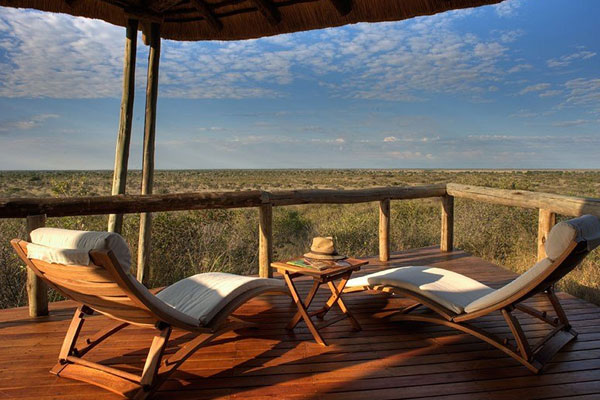
Now, however, two lodges are situated inside the park boundary, which opens up the reserve to those who would not consider camping. The Lodge boasts of three categories of unique tented accommodations, strategically secluded to ensure a feeling of privacy and intimacy at all times. The lodge can accommodate a maximum of twenty guests, thus ensuring exclusivity that defines contemporary luxury, allowing you to experience the Kalahari at your own pace.
Chobe
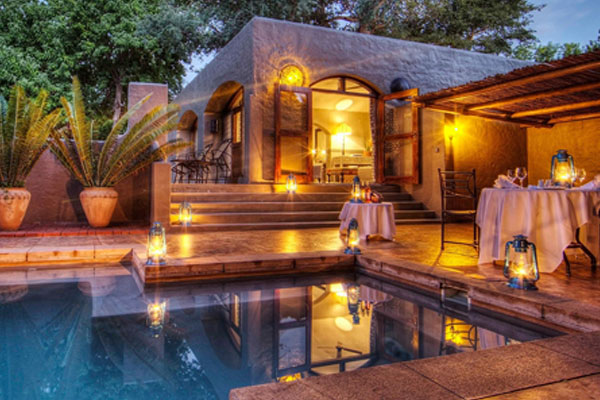
The Chobe Accommodation options below feature lodges inside the park. You can opt for packages that include your meals and activities. These guided activities include game drives, nature walks, boat trips, and birding. Some areas also allow for night game drives. The properties are unfenced and animals roam freely through the park and the neighbouring reserves. The level of luxury at these remote locations is astounding. Once you have seen the care put into these eco-lodges, you will understand the feat in logistics that they have accomplished.
Makgadikgadi
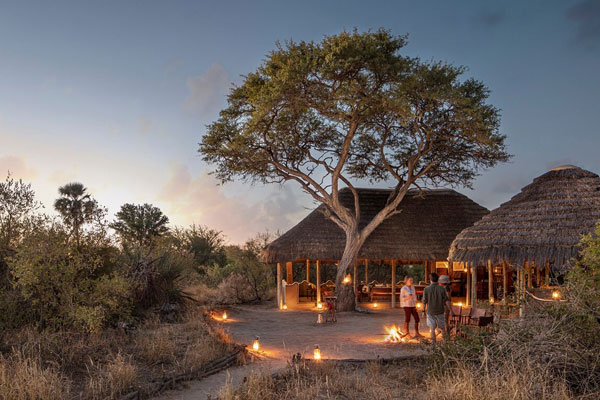
Botswana’s Makgadikgadi covers an area roughly the size of Switzerland, and has some of the largest saltpans in the world! The national park protects a small portion of these pans, as well as the Boteti River – a magnet for wildlife especially during Botswana’s dry season when the river is the only source of water for miles around. Makgadikgadi Pans is an extraordinary place! Visit during the dry winter months and you’ll see a shimmering, salty crust stretching out to the horizon.
Okavango
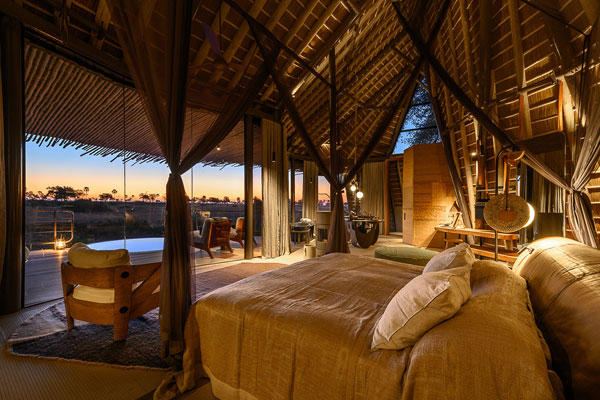
The Okavango Delta offers a full range of accommodation options for every budget and interest, from simple mobile camps to some of the most sought after luxury lodges on the African safari circuit. Accommodation in the Okavango Delta falls across three broad categories – water, land and mixed camps – categorized by the activities they offer. We generally recommend combining water and land camps, or a mixed camp, for a comprehensive Okavango experience.
Savuti
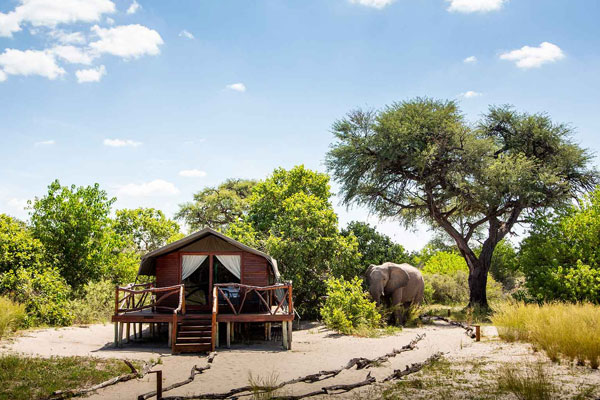
The Caprivi Strip is situated in the north-east of Namibia and unlike the rest of the country is blessed with good rainfalls. Caprivi Strip accommodation at the lodge is in 10 tented suites, connected to a central area through a network of pathways. Each en-suite tent is made of steel, wood and canvas and has proper doors and windows – ideal for a completely safe rustic feel. Private verandas allow views over the untamed bushveld where you can see a host of various plant life and the resident bird life as well as mammals.
Frequently Asked Questions Botswana
We Think You’ll Love
The Best Time To Visit Botswana is from July – October every year. This is the time where the dry season makes for finest wildlife viewing. Another perfect time to visit Botswana is during from May to June. This is the region’s “shoulder season”, right between Botswana’s low and high seasons, when fewer travellers have been going for Botswana.
The Best Places To Visit In Botswana includes the massive Okavango Delta, Chobe National Park and the legendary Kalahari Basin. A t lovely sight to behold, the Chobe National Park is the most popular attractions in Africa. And it makes Botswana a top most destination to visit.
Botswana Wildlife includes all of Africa’s Big Five animals — the lion, leopard, elephant, rhinoceros and Cape buffalo; hippos, cheetahs, giraffes, Nile crocodiles, brown and spotted hyenas, zebras, warthogs, black and white rhinos, chacma baboons; myriad gorgeous antelope species, including the greater kudu, sable antelope and blue wildebeests; and large packs of endangered African wild dog.
Botswana Safari Cost starts from US$250 per person per day, and an upper limit of around US$1200. Botswana Safaris include supremely comfortable accommodation, high-class meals and packages with all activities.
Botswana Accommodation is world class, whether it’s camping or lodges.
Botswana Lodges frequently have rooms with private terraces and private plunge pools. Botswana Safari Camps or Tented Camps or Mobile Camps, have safari-style canvas tents, usually with canvas floors and rugs.
A three-night stay in the Chobe National Park, followed by some time the Okavango Delta over a five-day period, creates the perfect Botswana Safari Packages.
Our specialists can arrange the Botswana Safari that suits your schedule and guide you regarding the number of days to spend in each place.
Botswana has a huge advantage over the rest of the world when it comes to attracting tourists: the wildlife. The array of animals that reside in or pass through the country is phenomenal. Ranging from endangered animals such as wild dogs and rhinos to the numerous and thriving bird life that inhabits the area.
Currently, there are no travel restrictions to any country in Africa. In regards to any upcoming Travel To Botswana, health checks are being conducted at all ports of entry into Botswana, including the Sir Seretse Khama International Airport in Gaborone.
One of the best travel destinations in Africa, Botswana is known for its great safaris, incredible wildlife, and exciting adventures. Those who visit Botswana experience a place like no other. Its breathtaking landscapes cover a vast variety of habitats, from the sands of the Kalahari Desert to the lush Okavango Delta.
A truly beautiful sight to behold, the Chobe National Park is one of the most popular attractions in Africa and makes Botswana a must-visit destination.
Botswana Safaris are renowned for their exceptional quality. The country is renowned for offering diverse ecosystems and an abundance of wildlife, making it an outstanding safari destination.
Yes, a Botswana Safari can be expensive due to its remote locations, luxurious lodges, and the emphasis on sustainable tourism which limits the number of visitors.
Both Botswana and Tanzania offer unique safari experiences. Botswana Safari Tours are known for their water-based activities and exclusive experiences, while Tanzania is famous for the Great Migration.
The Best Time for a Botswana Safari is during the dry season from May to October when wildlife congregates around water sources, making it easier to spot animals.
Botswana Safaris are expensive because of the country's focus on low-impact, high-quality tourism, exclusive access to vast wilderness areas, and the inclusion of luxurious accommodations and services.
Choosing between Zambia and Botswana for a safari depends on what you want to see. Botswana is famous for the Okavango Delta and exclusive experiences, while Zambia offers exceptional walking safaris and Victoria Falls.
For a Botswana Safari, a minimum of 7 days is recommended to explore a variety of landscapes and wildlife, though longer stays allow for a more in-depth experience.
We are thrilled to help you plan your perfect safari holiday
We'd be delighted to help you with any questions you have about properties & safaris. Please fill in the form below so that we can help you create your perfect safari holiday.
Or
Contact Us
Feel free to give us a call or send us an e-mail:
Start Planning Your Tailored African Safari

Expert Safari Knowledge
With decades of expertise, we're your trusted safari guides, ensuring every moment exceeds your expectations.

Tailor-made African Safaris
Tailored to your preferences, our African Safaris guarantee an adventure perfectly suited to your desires.

Long-term Relationships
Our enduring partnerships across Africa provide exclusive access and authentic experiences.

Carefree Travel
Leave your worries behind and accept carefree travel with Falcon Safaris, where every detail is handled to perfection.
Our Travelers Say

We travelled with Falcon Safaris in Zimbabwe and Botswana for 16 days. Falcon designed a wonderful trip with private guide to the most interesting sites in both countries. The organization of the whole trip was excellent, flights within the country, accommodation and activites. The guides were very knowledgable and told us a lot about the countries, their history, people, economy and much more. We visited the Great Zimbabwe Ruins, the Victoria Falls Tour and a number of national parks in both countries.
Rhino tracking was a real adventure! We had tremendous further game drives and saw very many animals - we did the Big Five. We had much more Victoria Falls Activities than planned and enjoyed very much.We strongly recommend Falcon Safaris to everyone planning a trip to Southern Africa and East Africa.
Wonderful trip to Zimbabwe and Botswana with excellent organization and very competent guides

Our Consultant Vimbai was very helpful and accommodating. We stayed at the Elephant hills hotel which was nothing short of amazing.Our activities included a helicopter flight, dinner cruise as well as a morning game drive. All the activities were absolutely amazing.
Exceptional!

We worked with Gertrude to schedule and organize everything and she did an excellent job. I asked a lot of questions via e-mail and she answered everyone in a timely helpful manner. Our guide at Victoria Falls was also great. He met us at the airport, provided a thoughtful tour of the Falls and got us to our next guide in Botswana. Our lodgings at River View Lodge were just as described- very comfortable and excellent food. All the staff were so pleasant and helpful. If I had to do it again I would arrange a morning boat ride as well. We only did the sunset boat rides and they were the high point of our entire trip- we saw so many animals and our guide was very knowledgeable. Just a great experience. Our lodgings at Oddball's Enclave was rustic and we loved it. So great to disconnect from the world for a bit. Leo, our guide, was the best - got us out and about, saw fantastic wildlife and got back to camp safely each time. Doc manages the camp so well. This whole trip was planned and organized by Falcon Safaris and we could not have been happier.
Fabulous, well planned trip

Falcon safaris have given my the correct advice with excellent service. The only suggestion will be to work closer with the lodges to confirm bookings as soon as possible. We have booked and pay our deposit a year in advance. We have only receive our final convermation from Chobe Safari lodge a week before departure. I do realize its not within your controle but with limit alternatives and a group of 14 people it becomes an issue to find alternative accomodation if the booking was cancelled.
Excellent and efficient service
Explore Our Africa With Customize Your Tour
We love Africa's diversity and create amazing trips for you. With 30+ years of experience, we customize every trip just for you.


